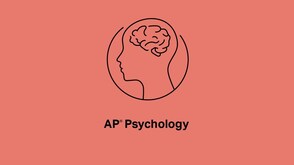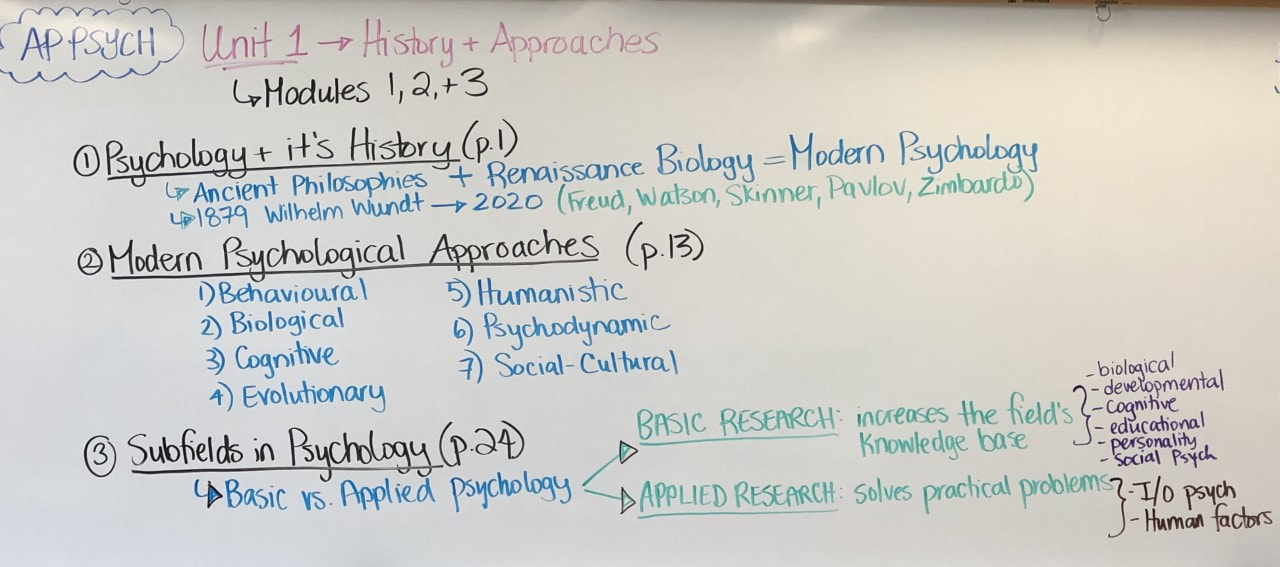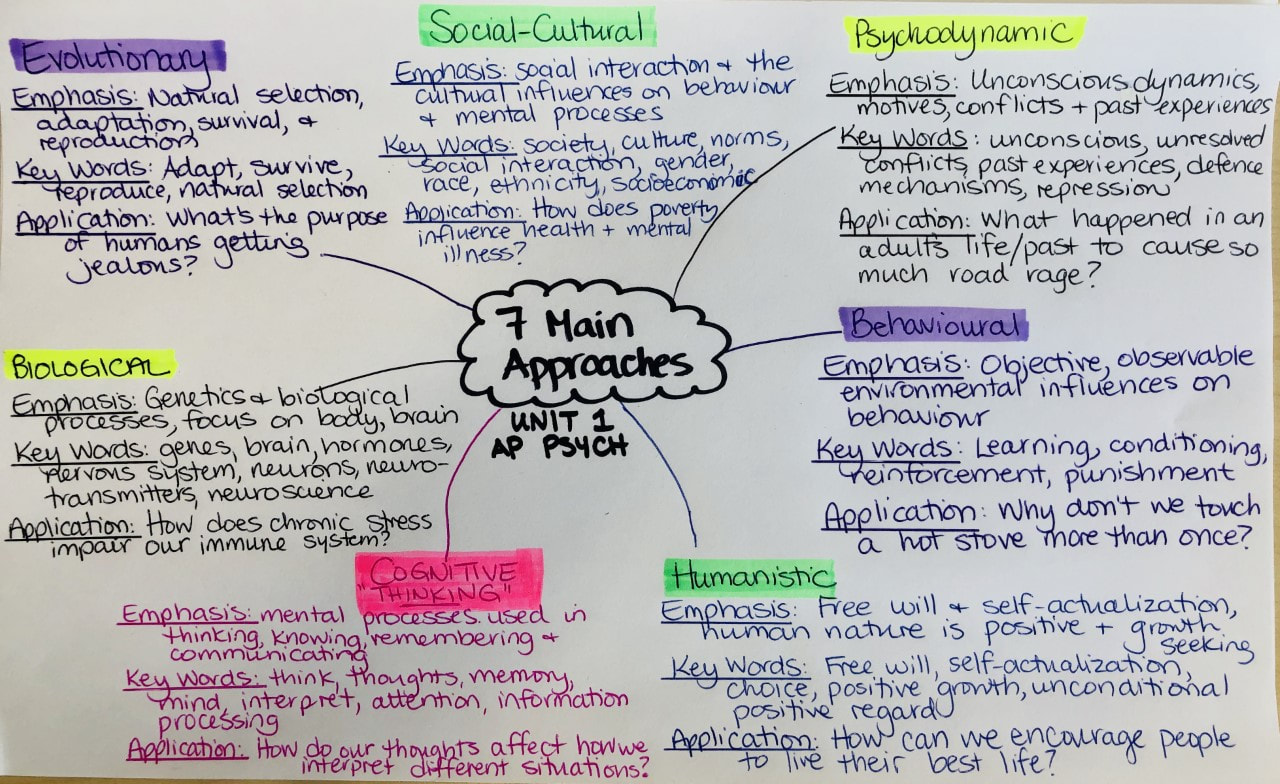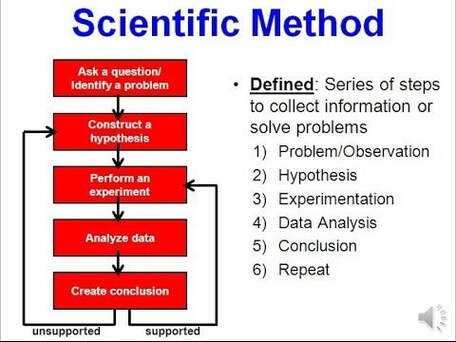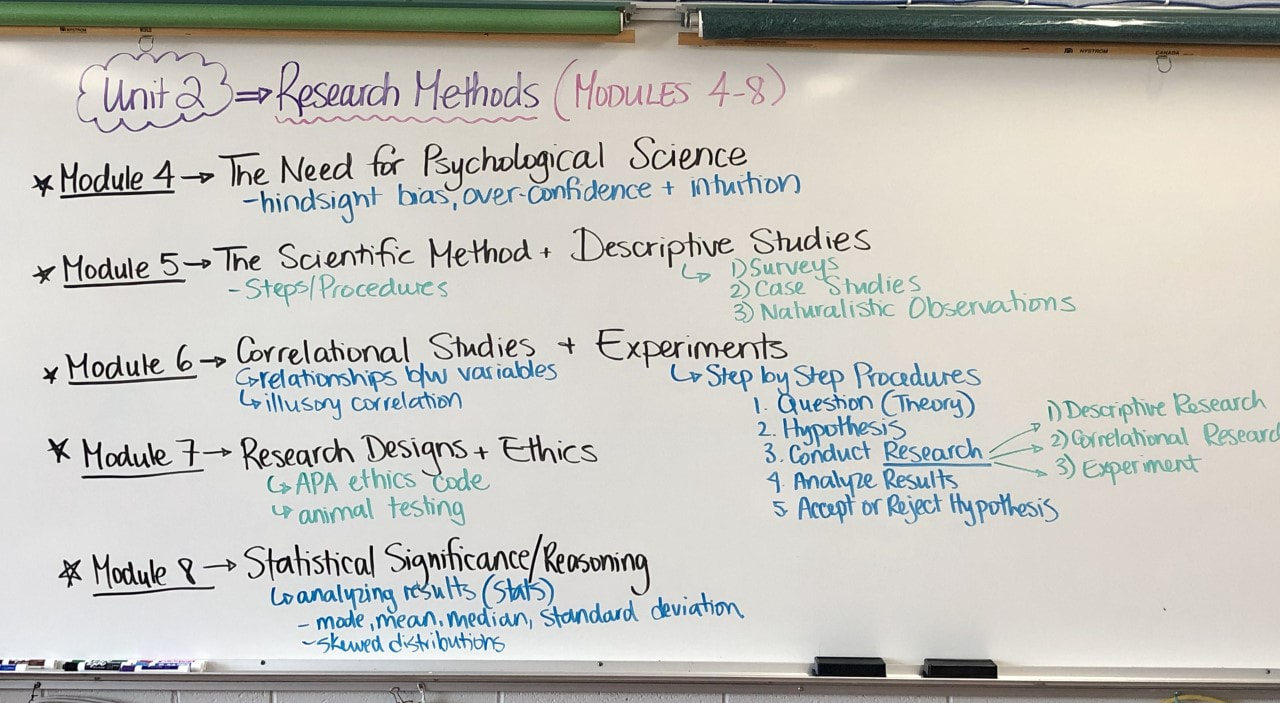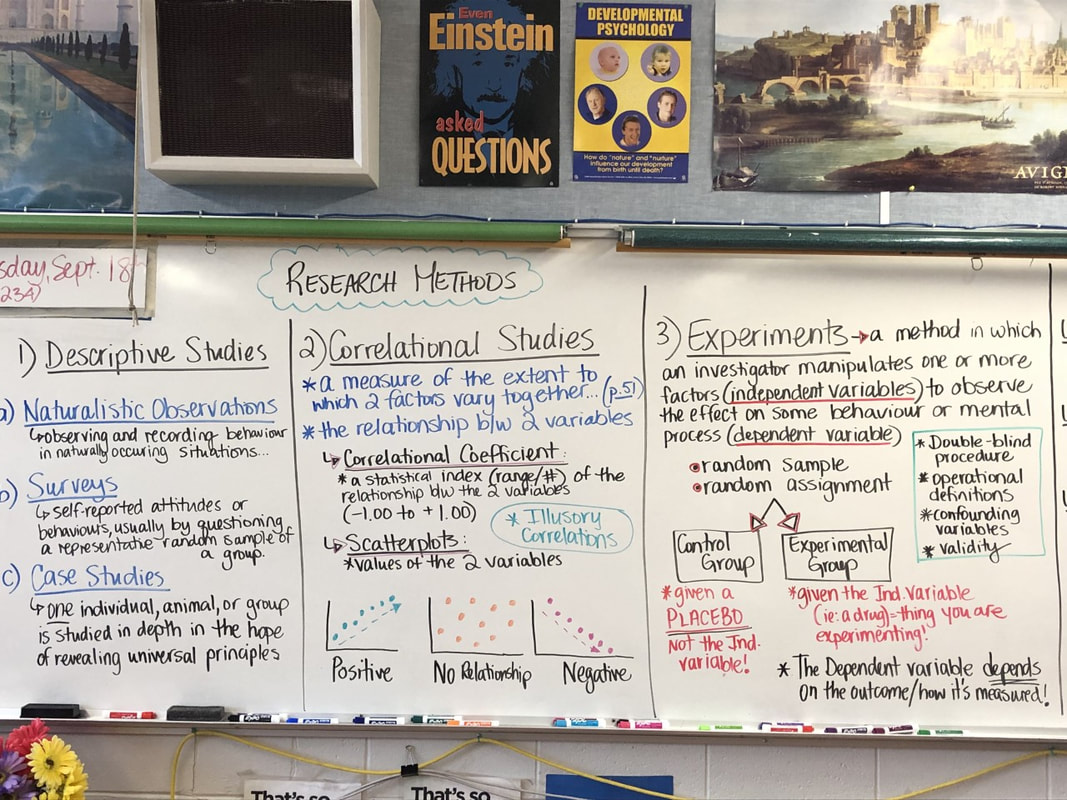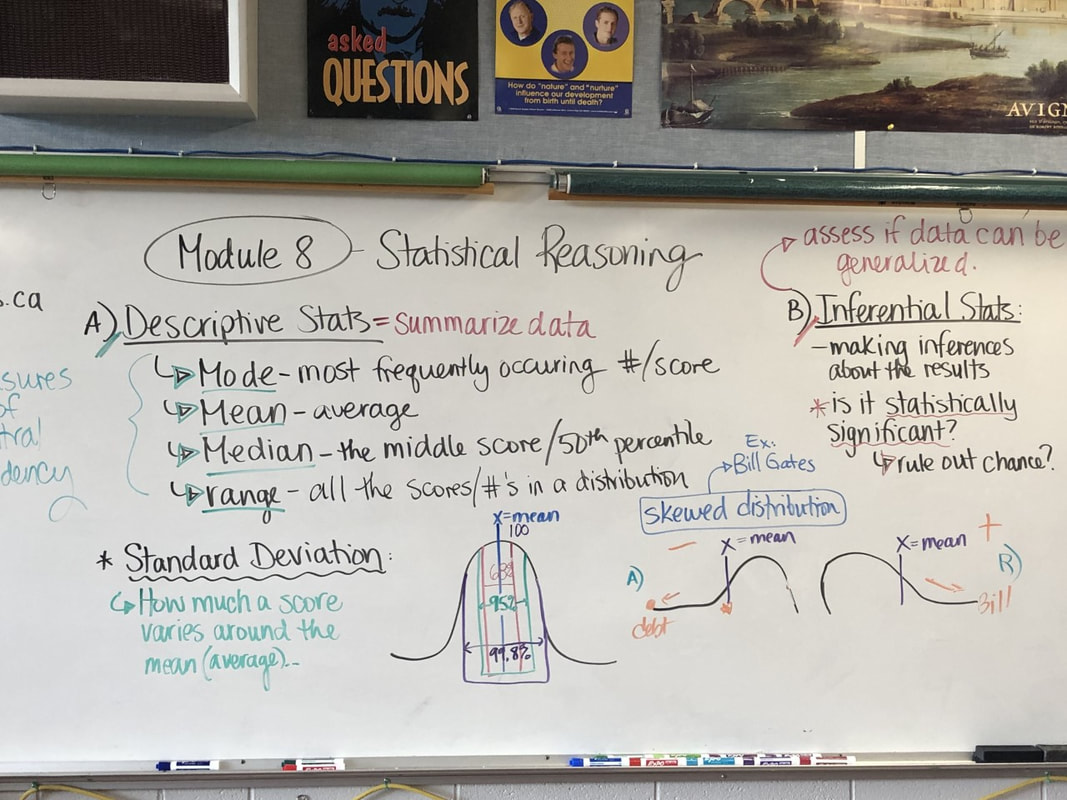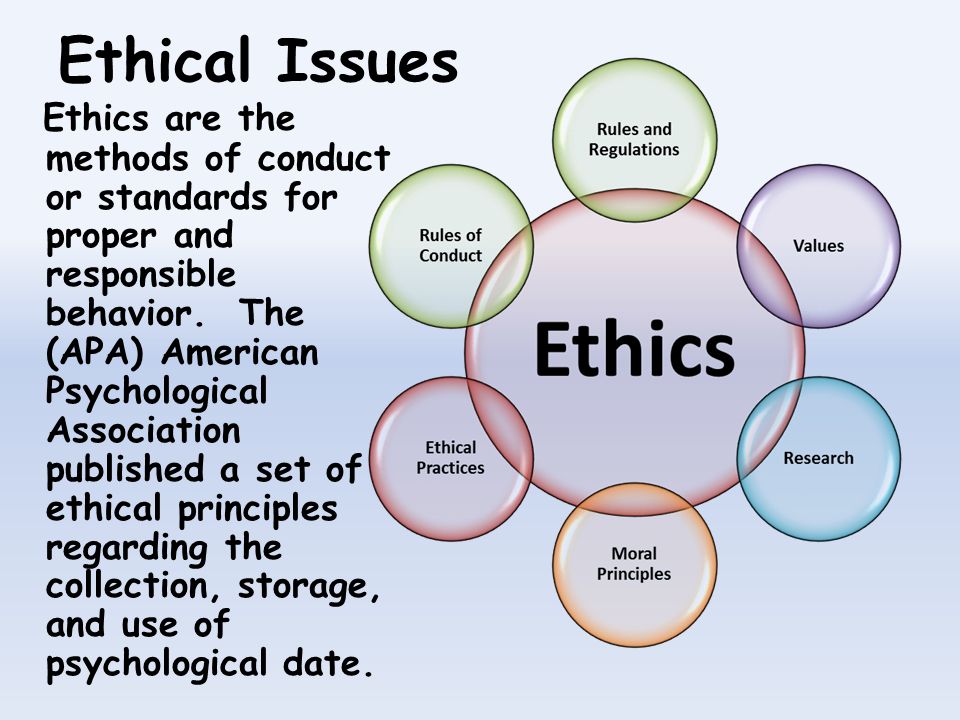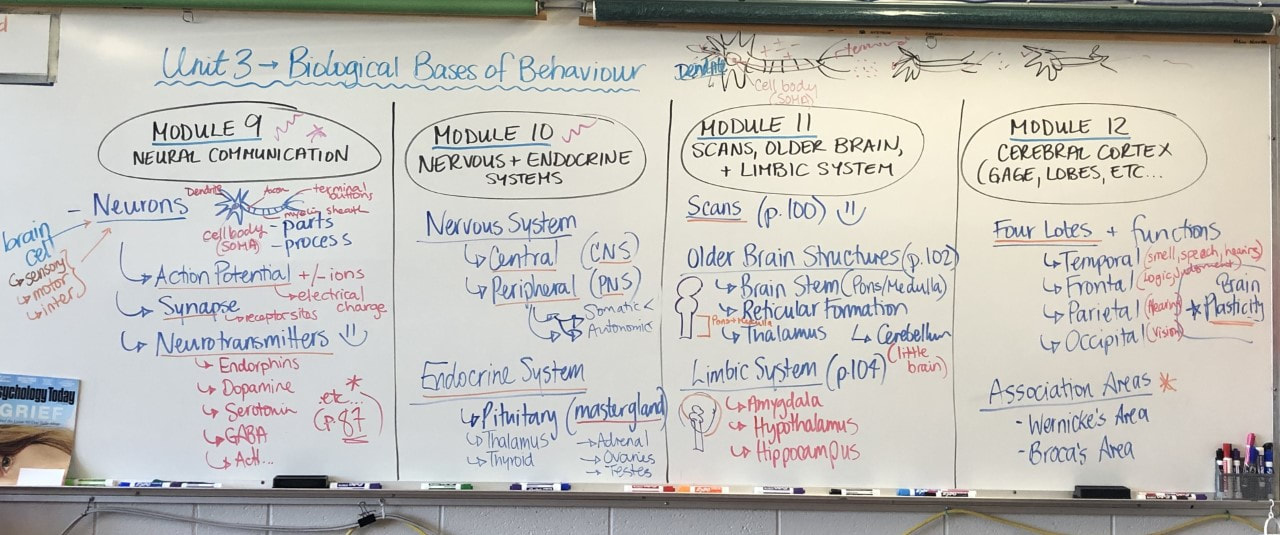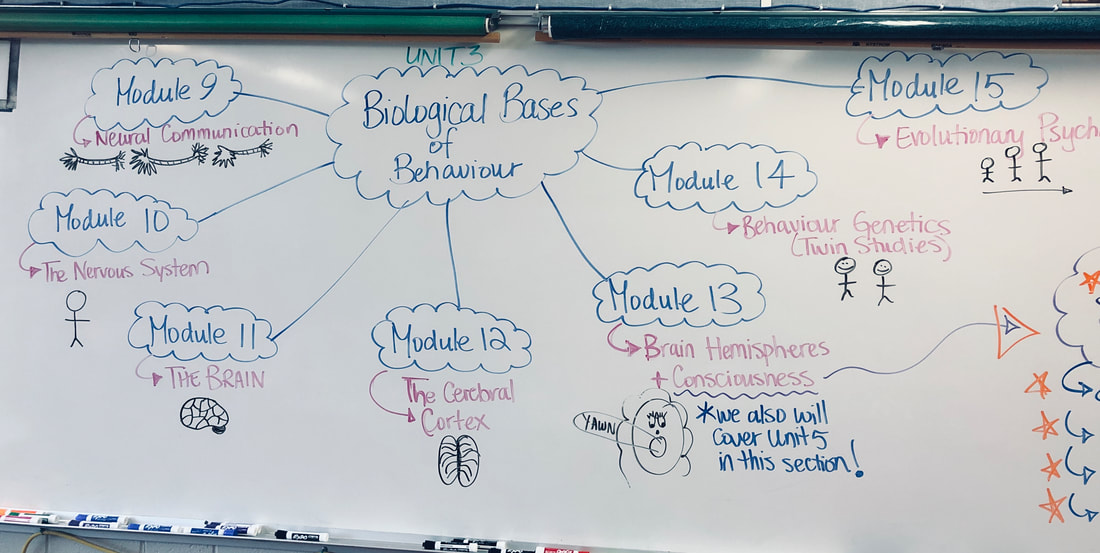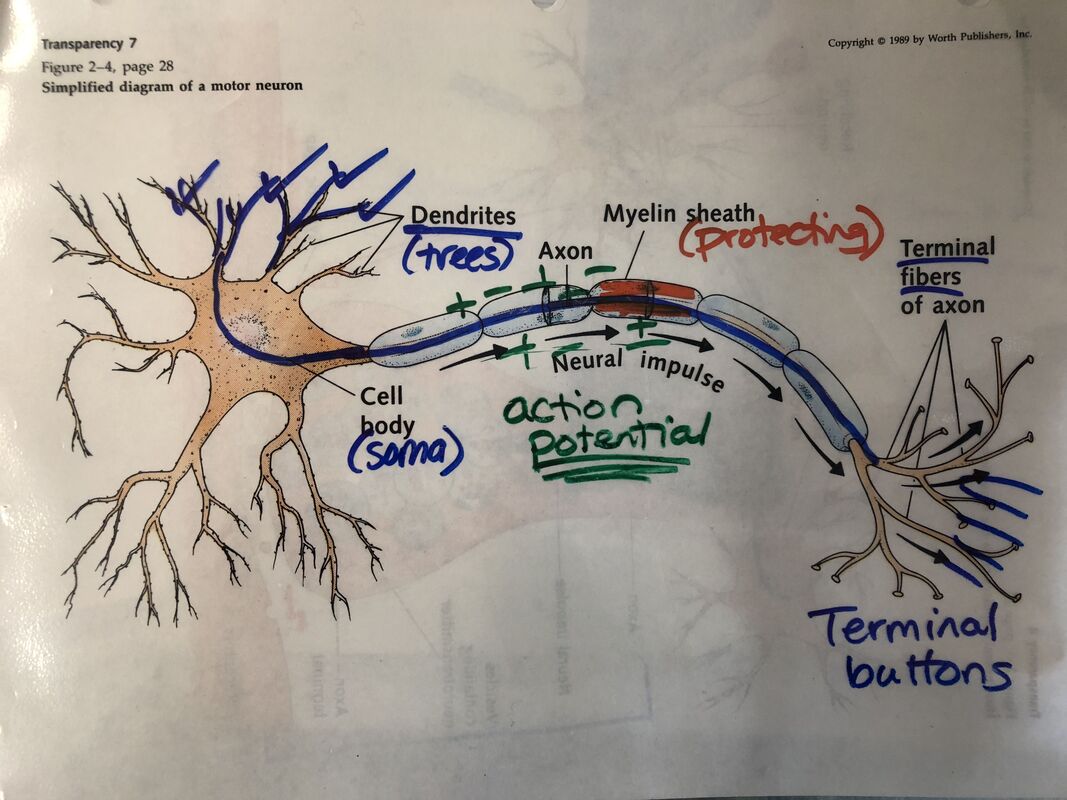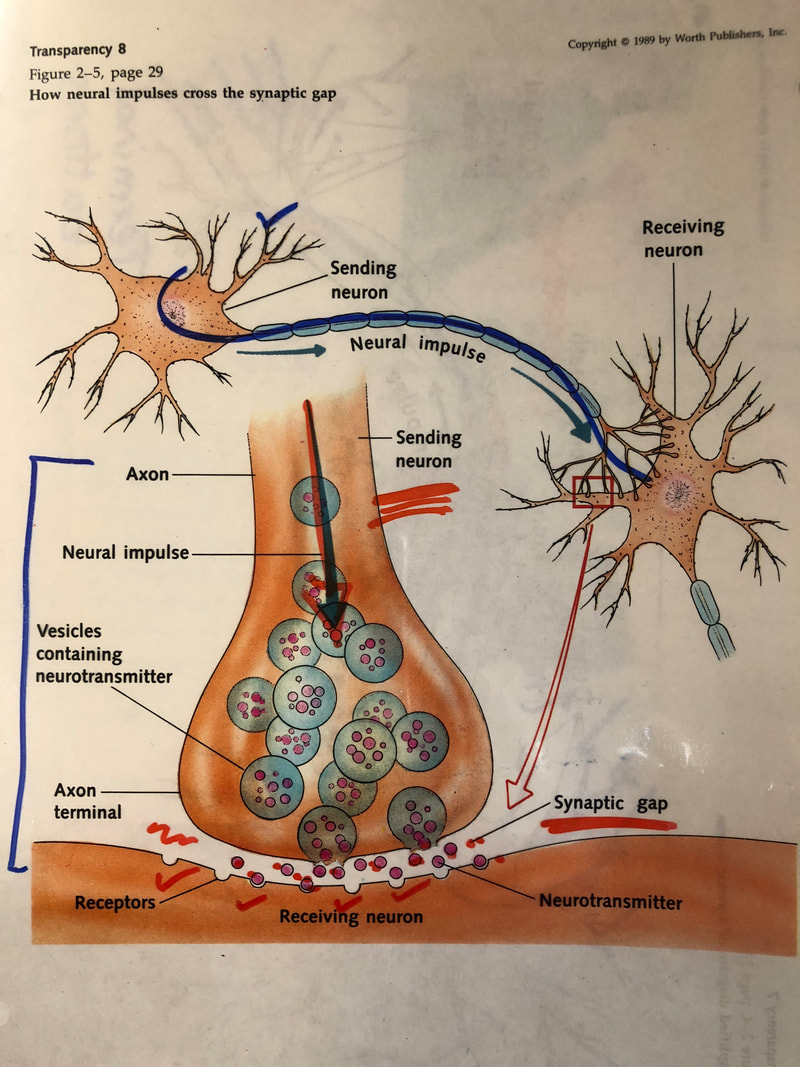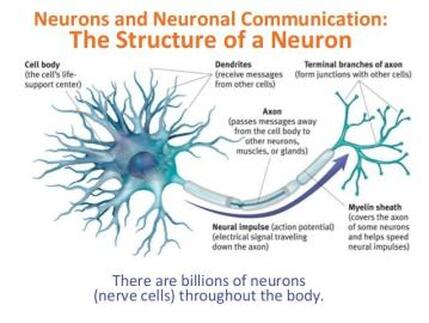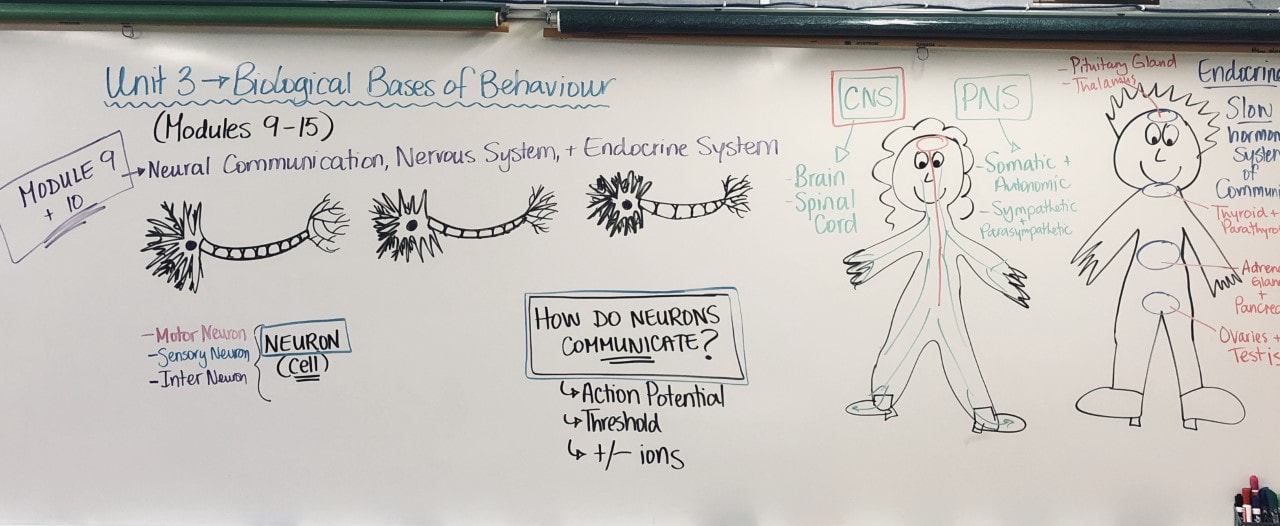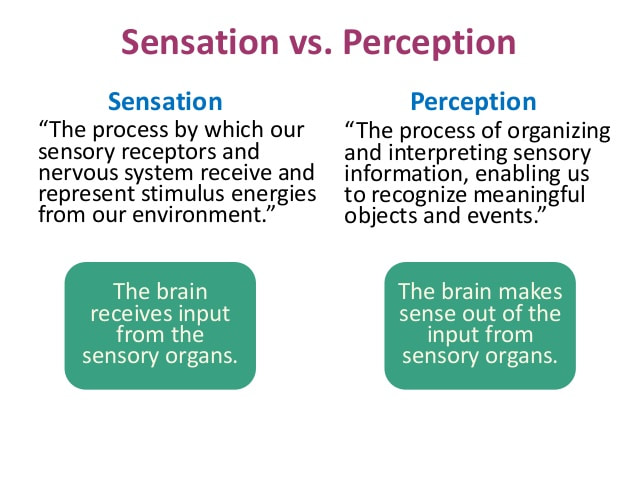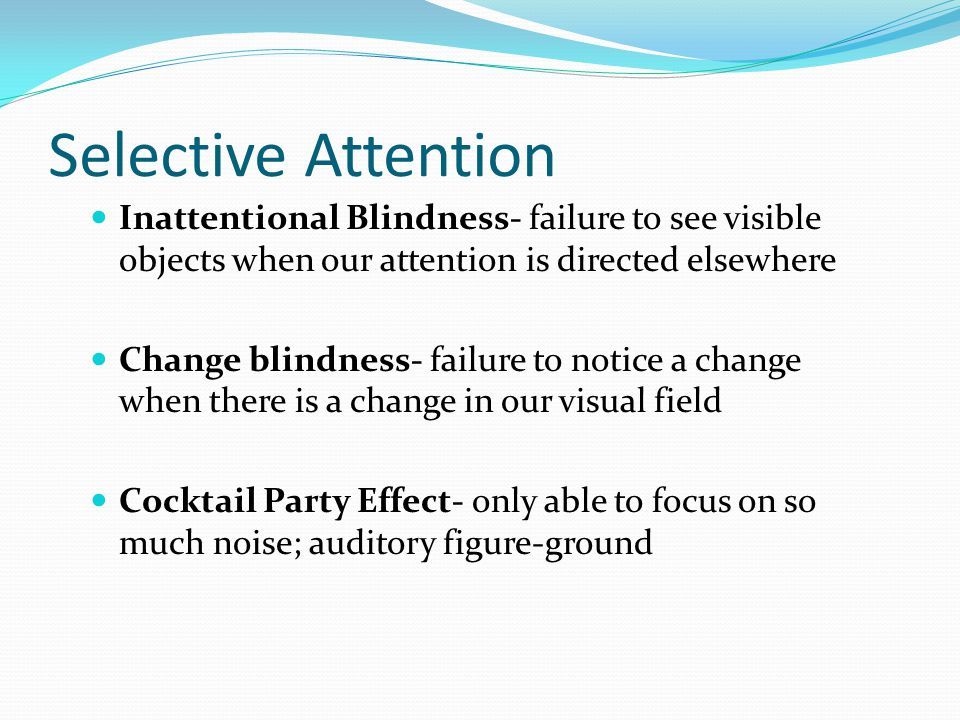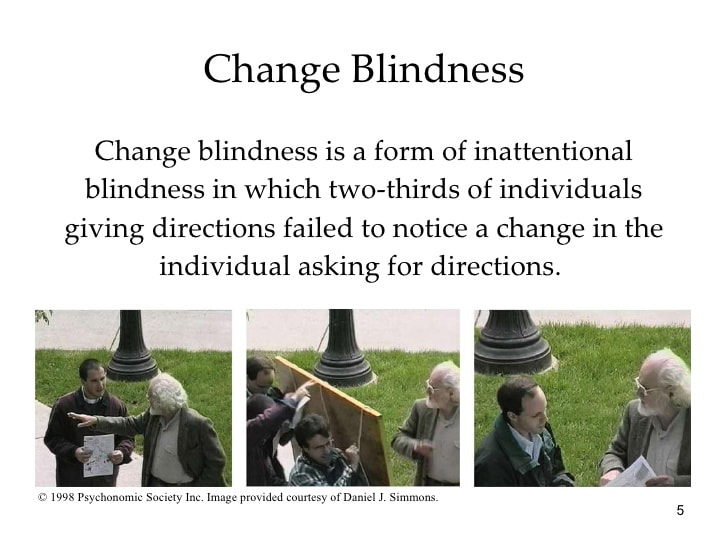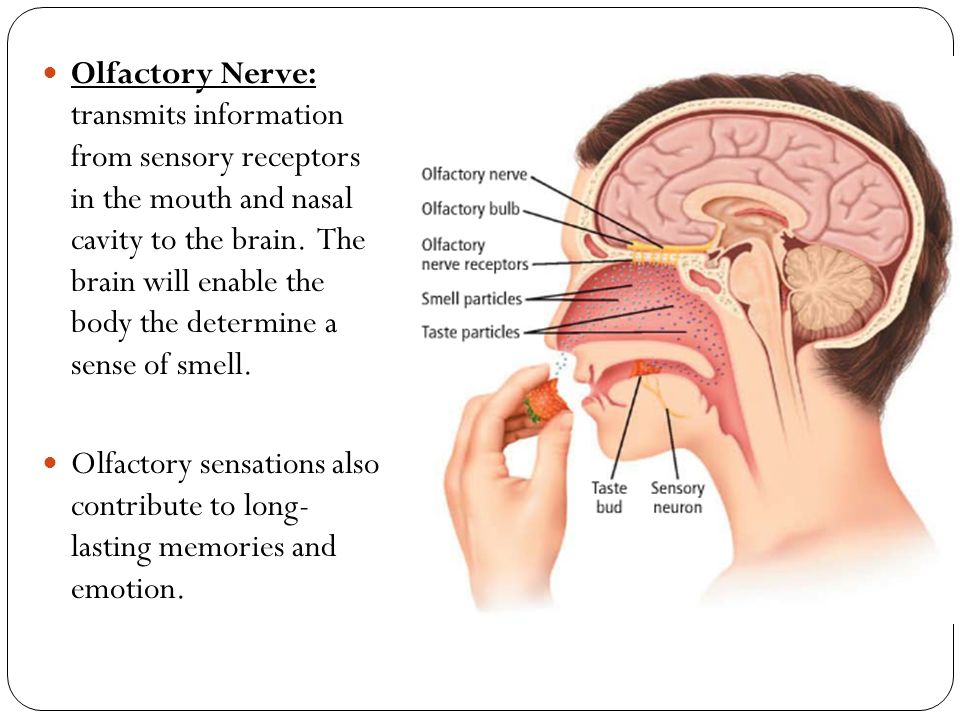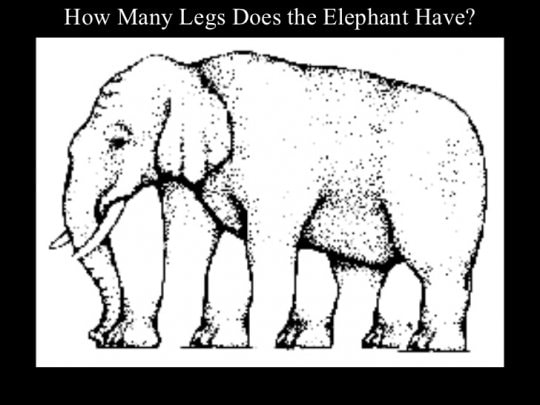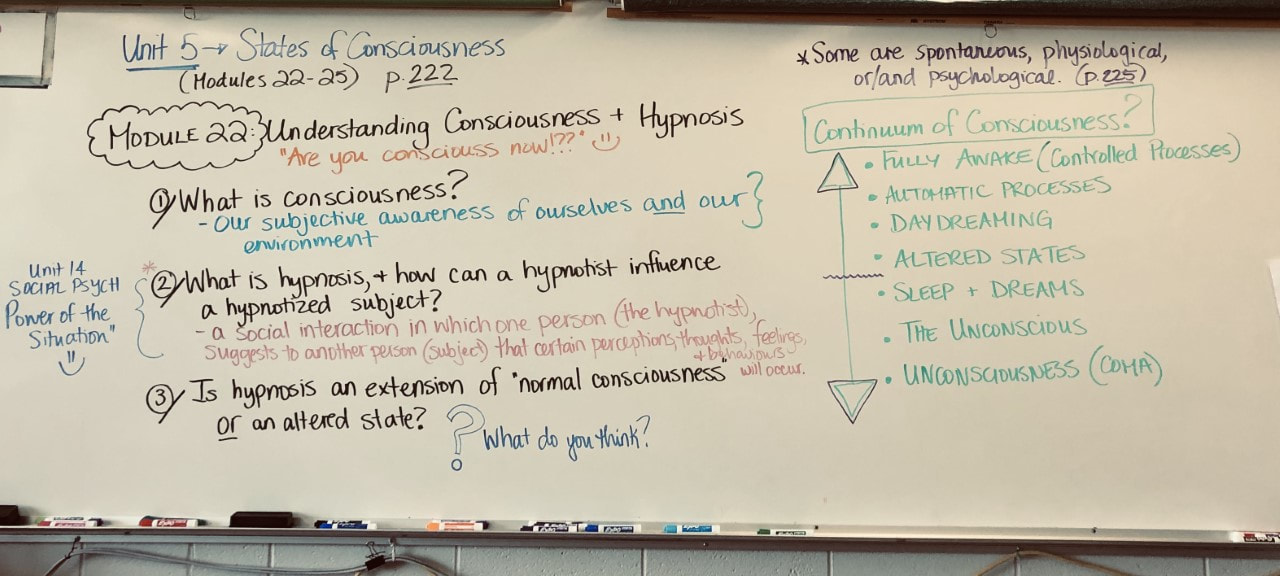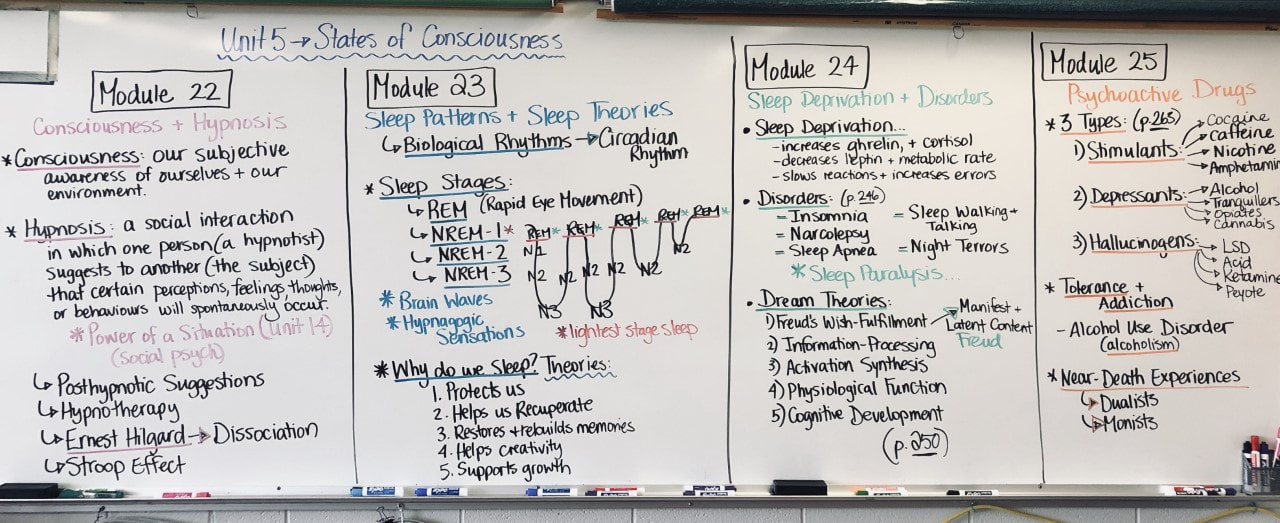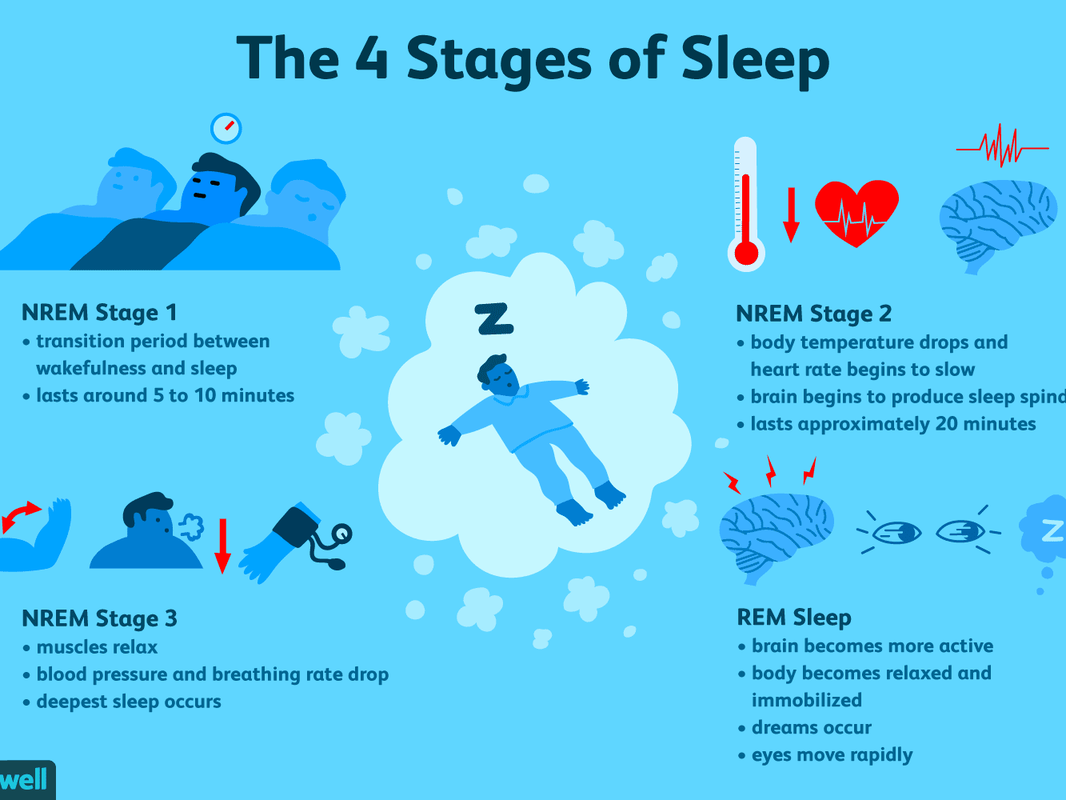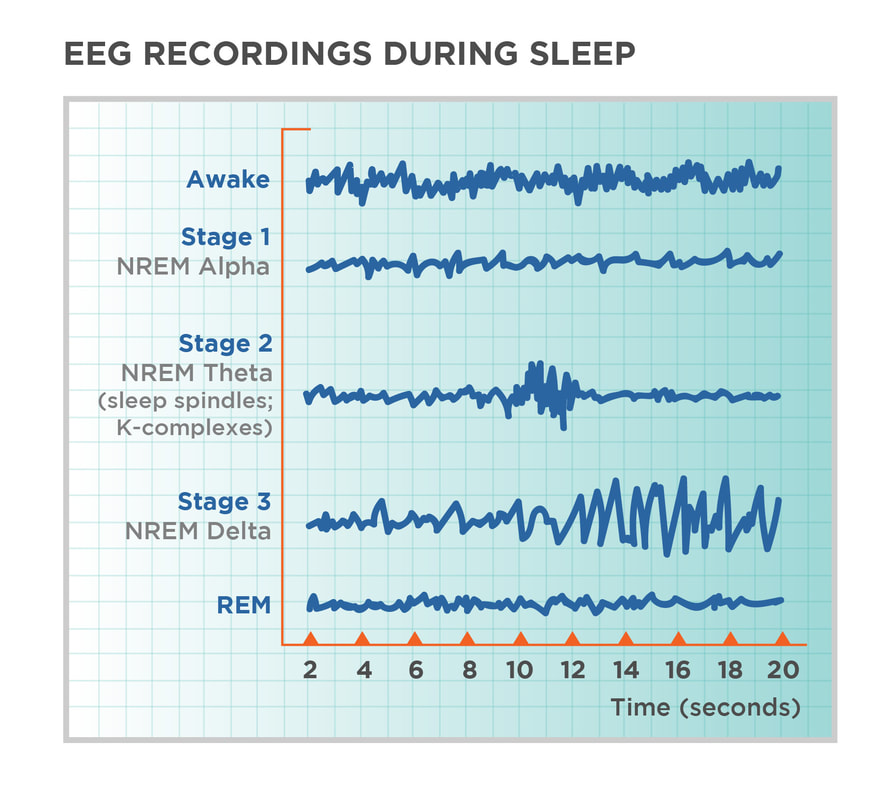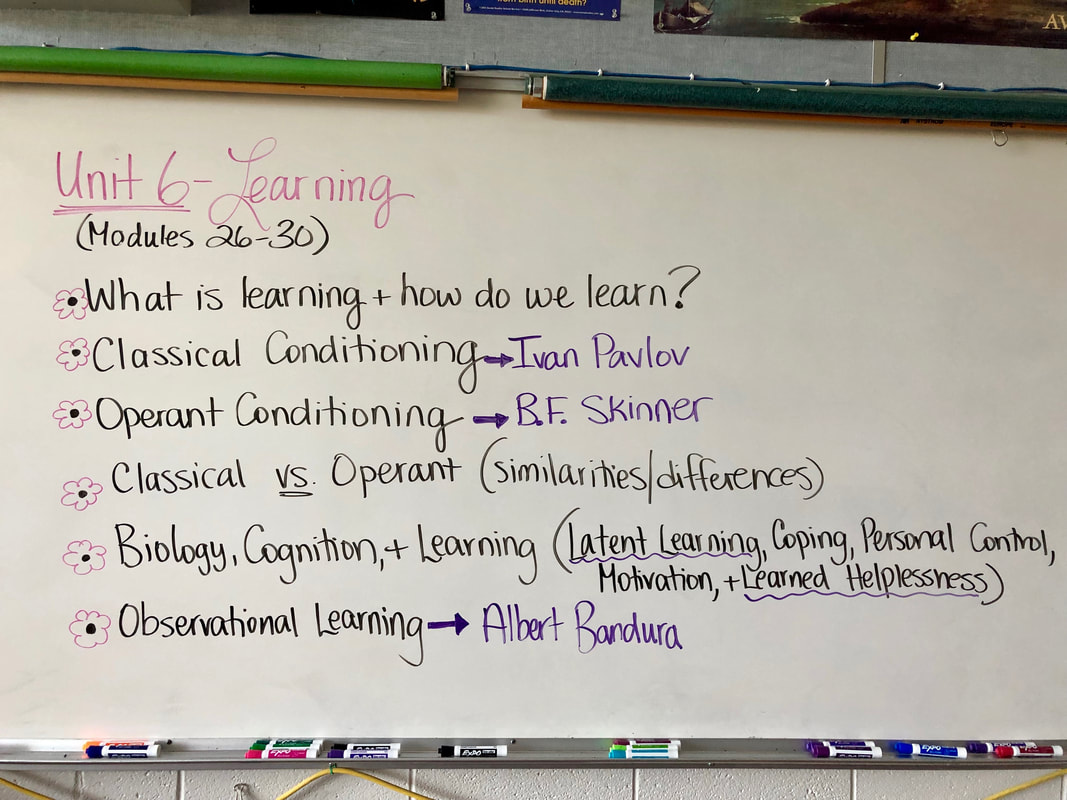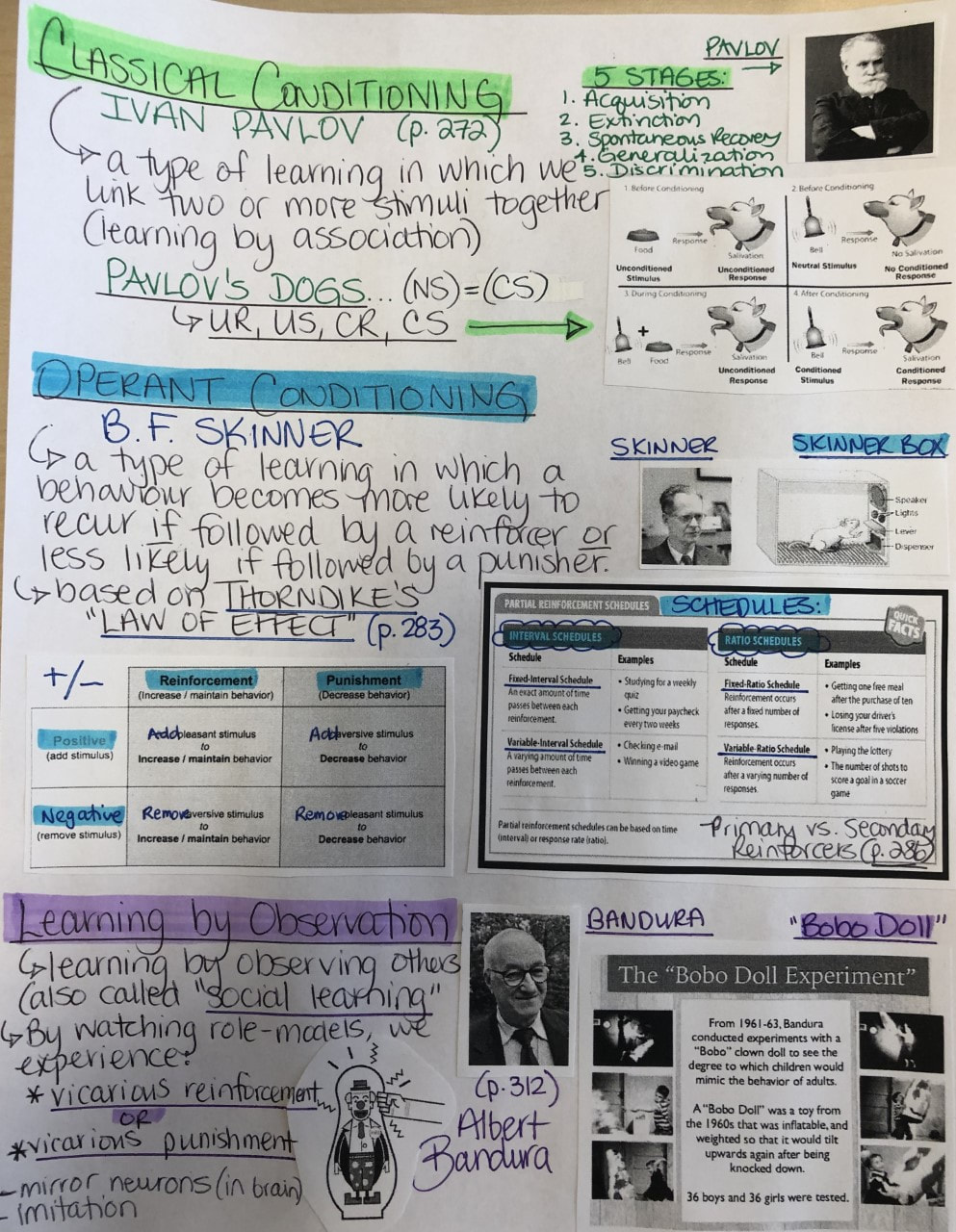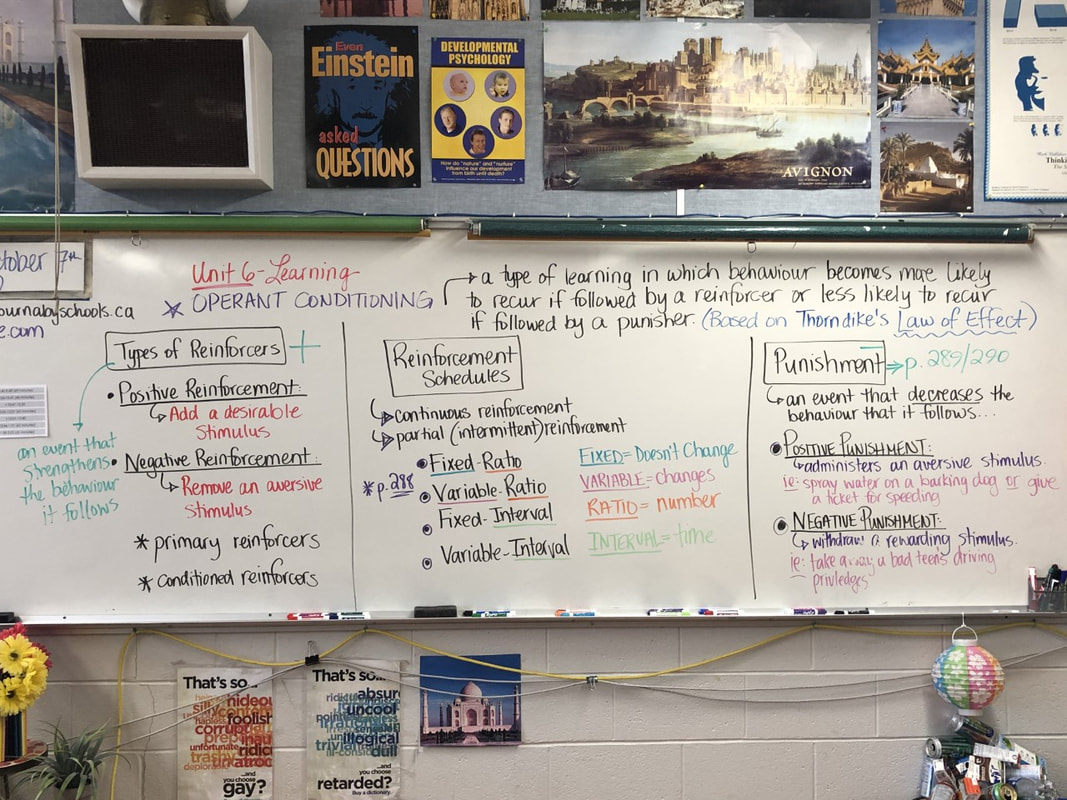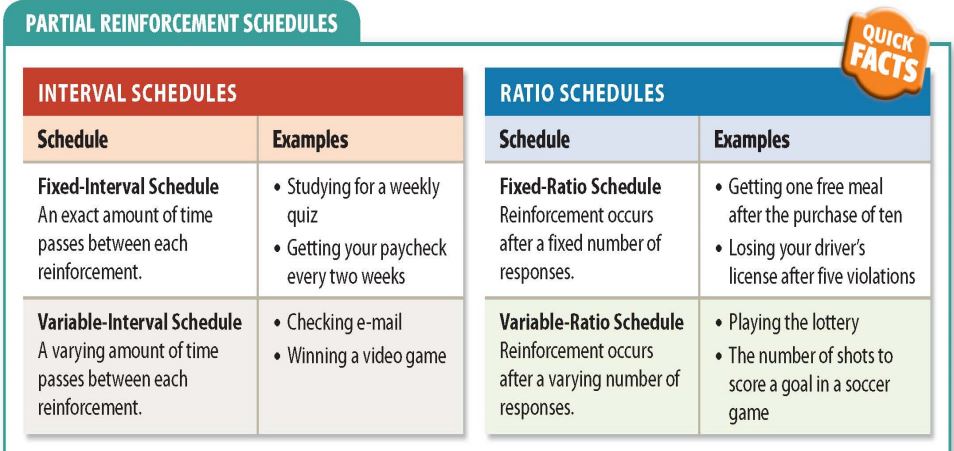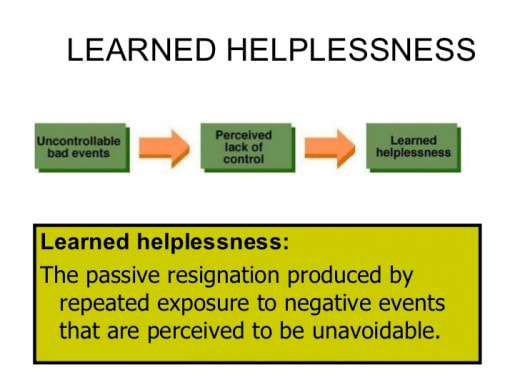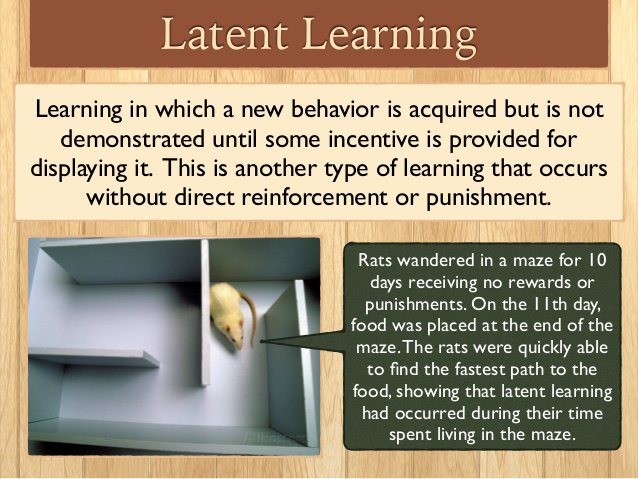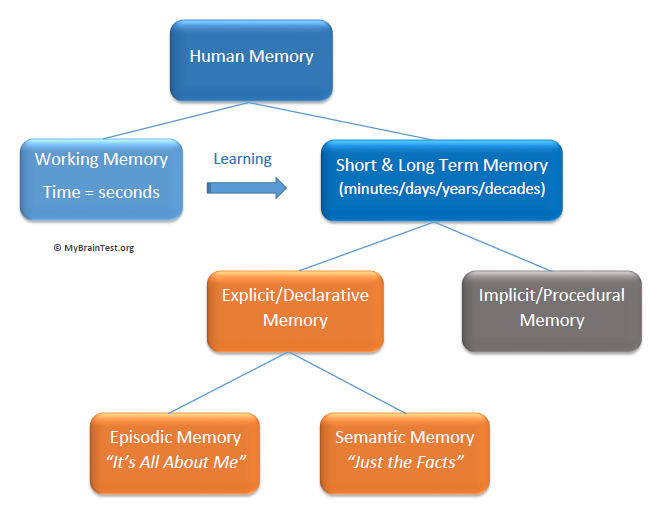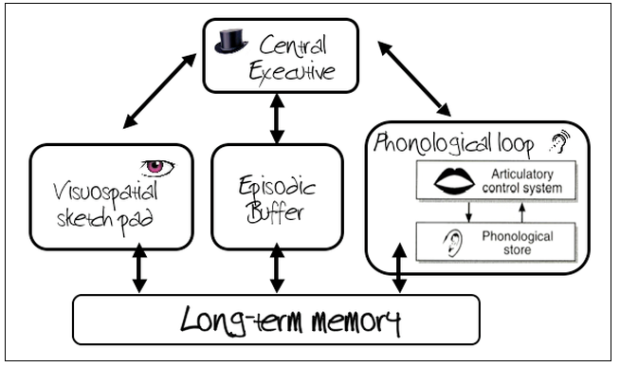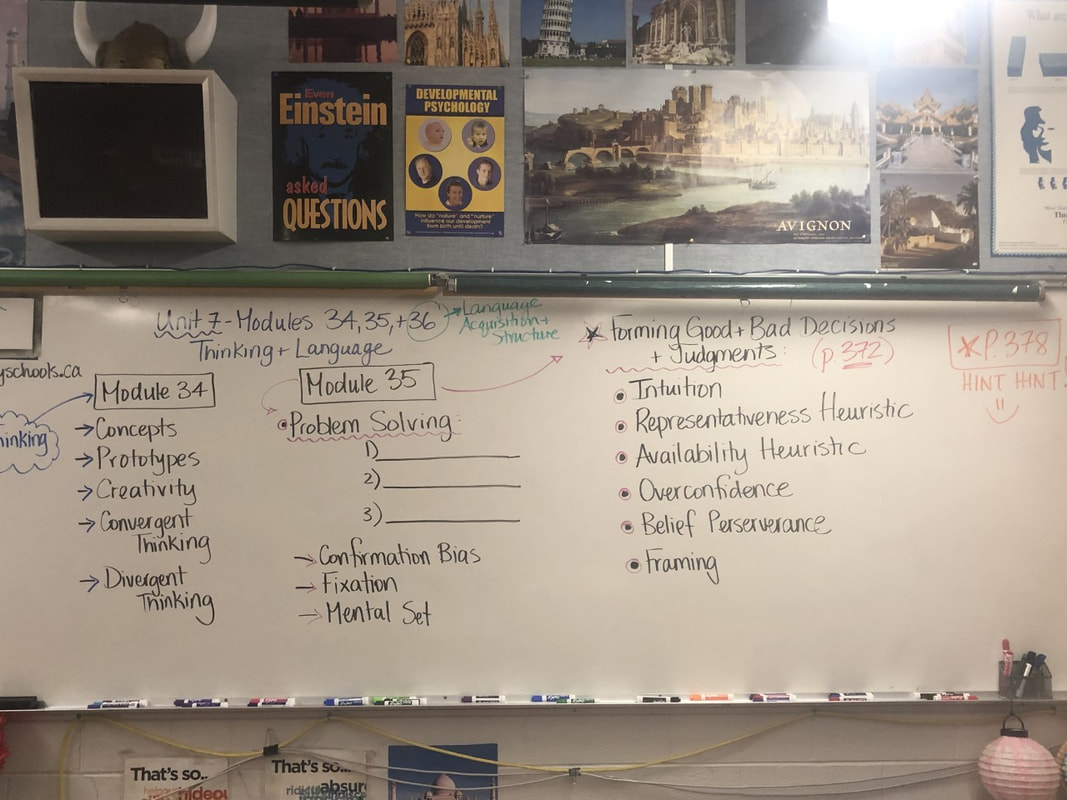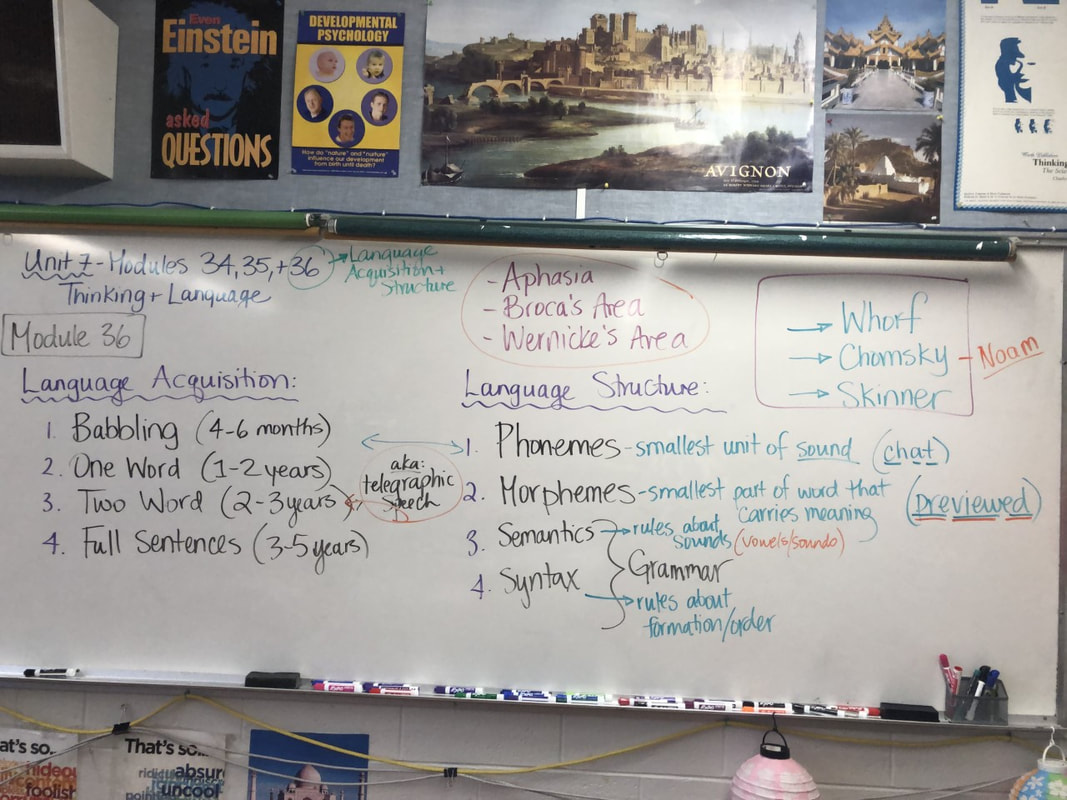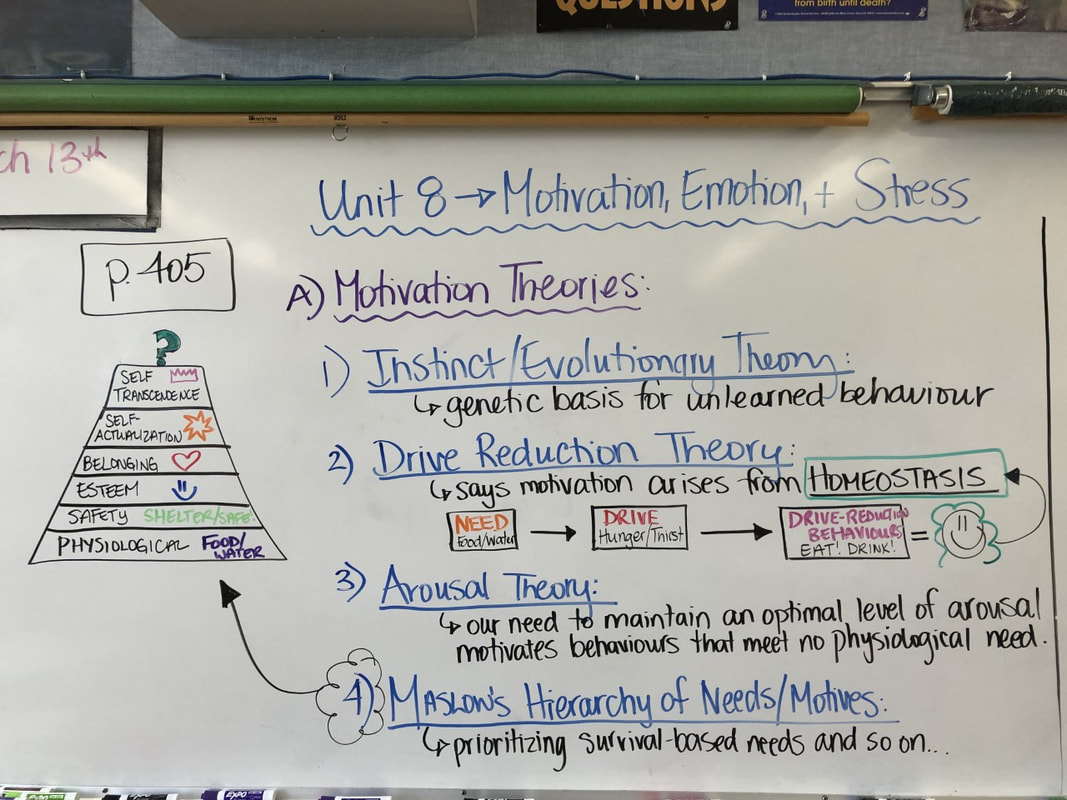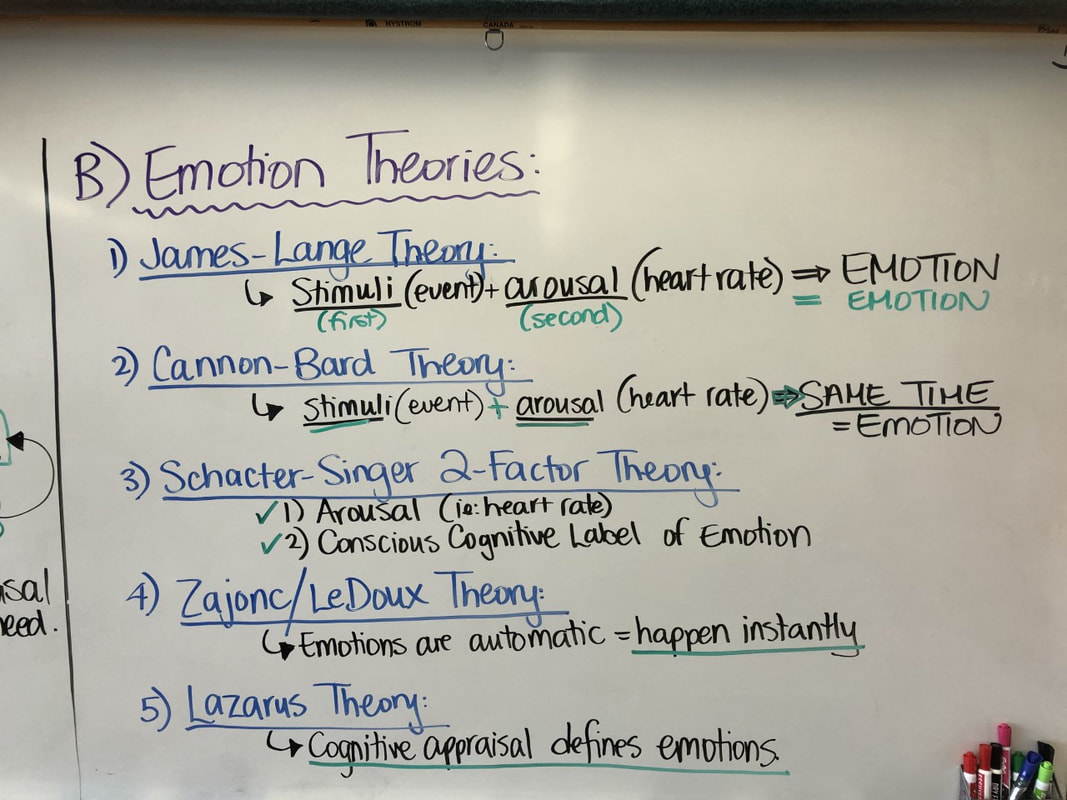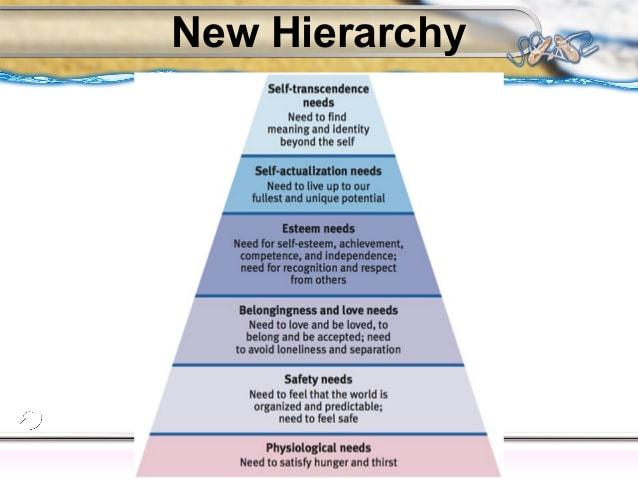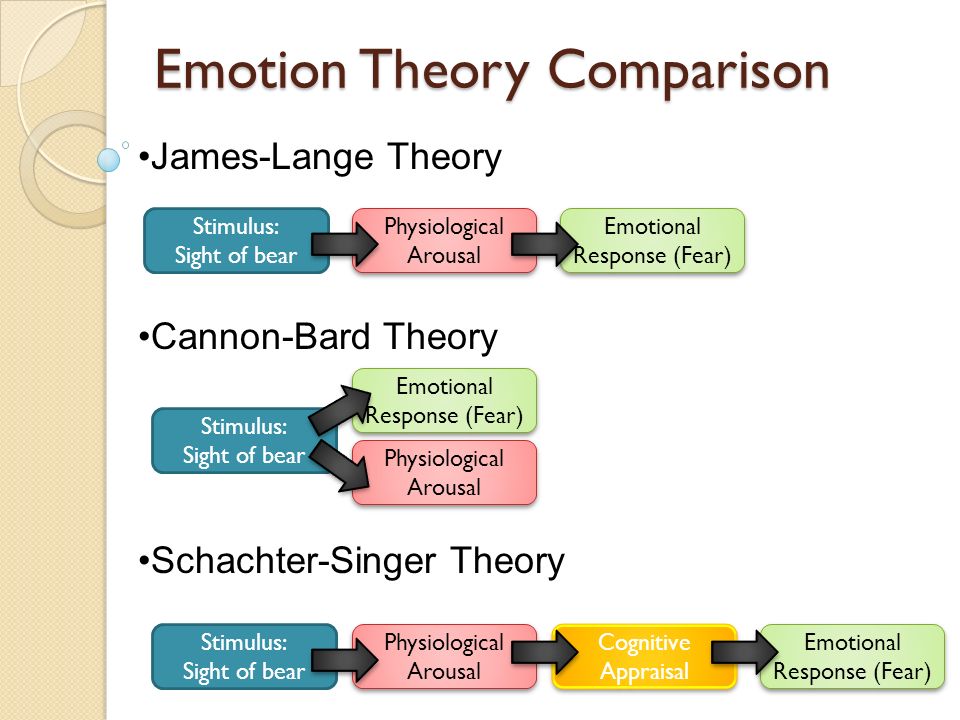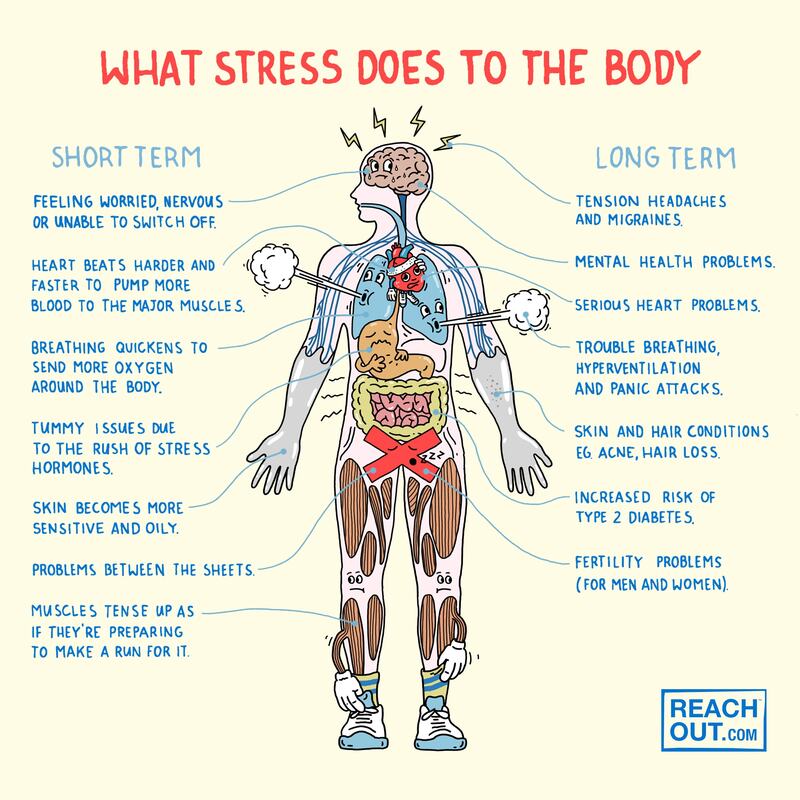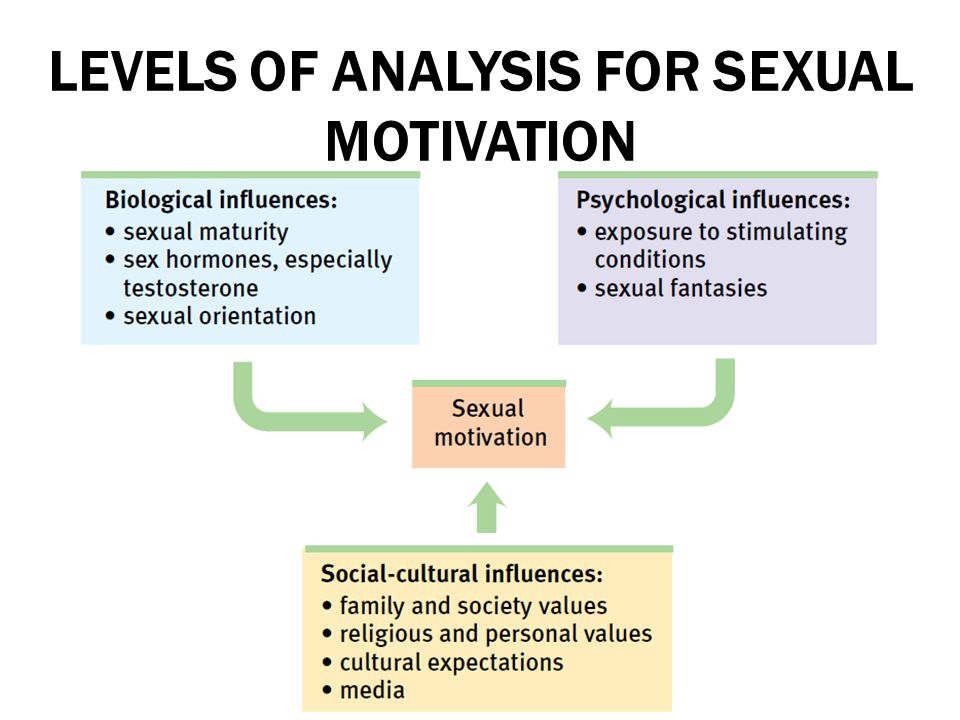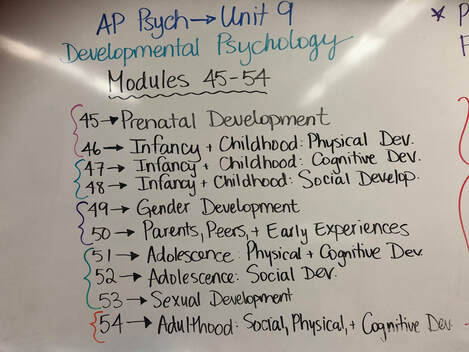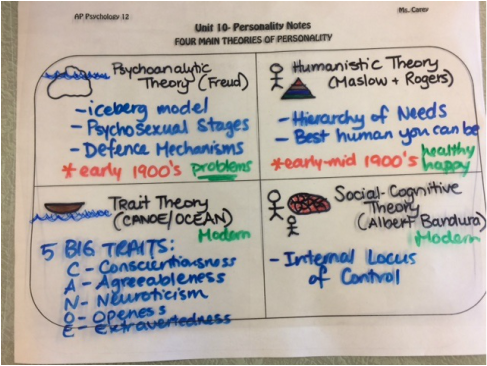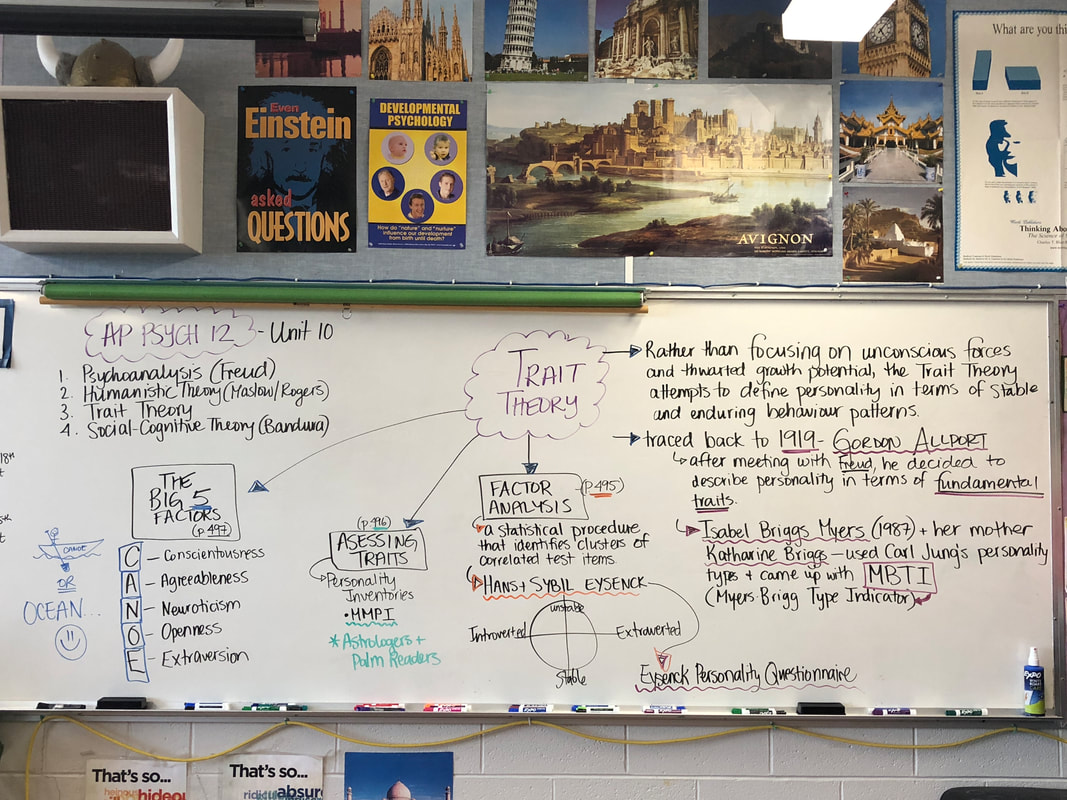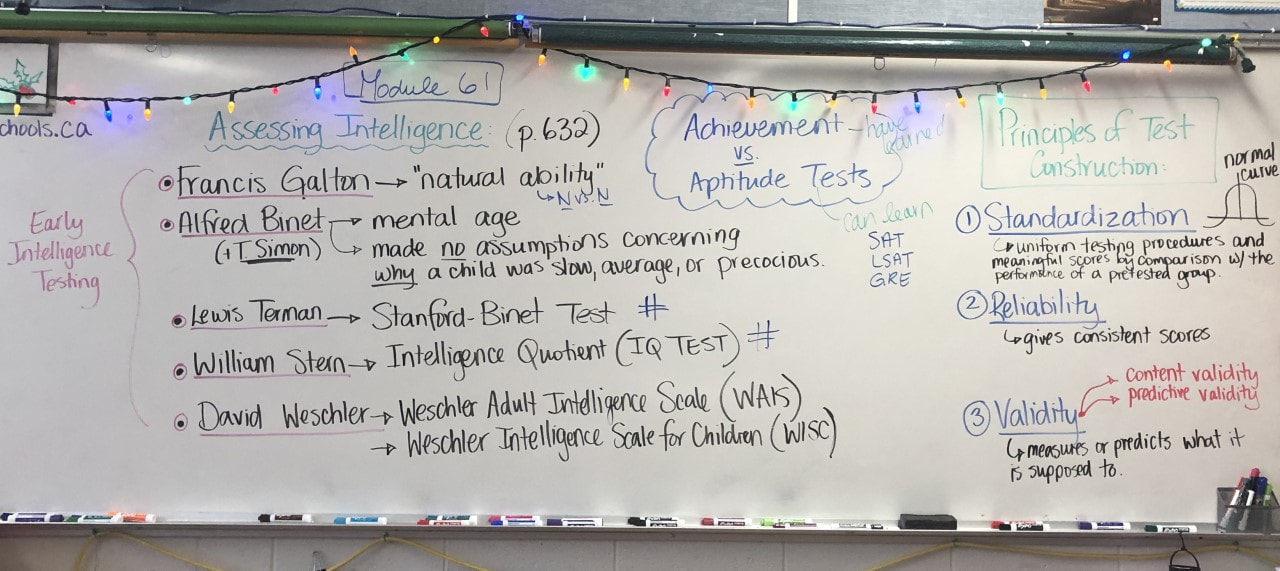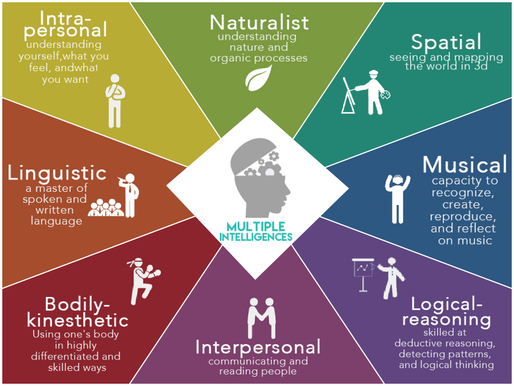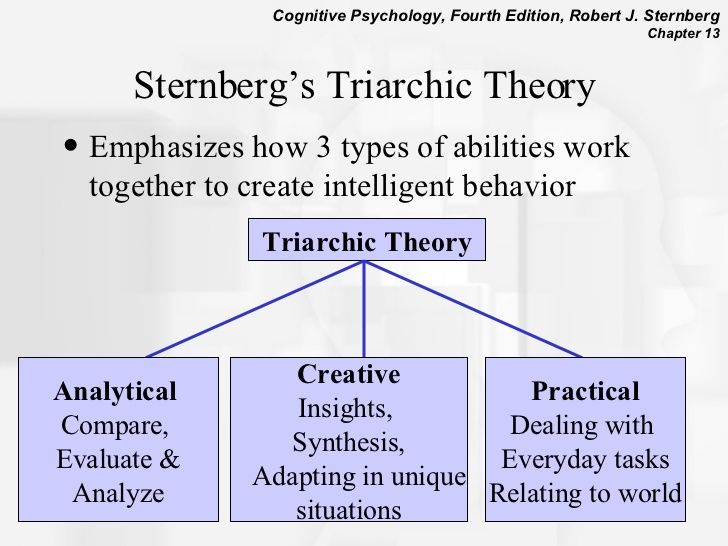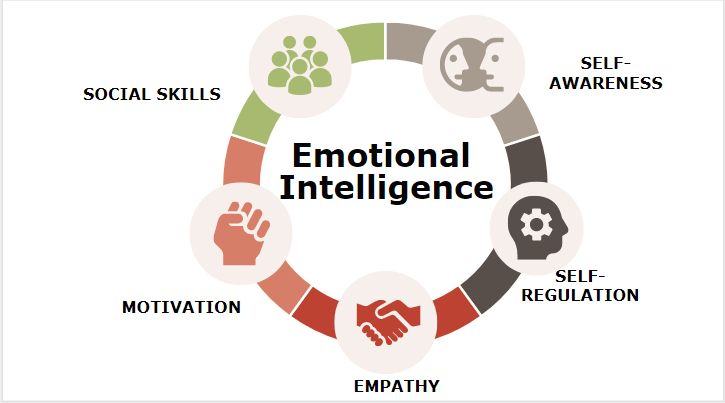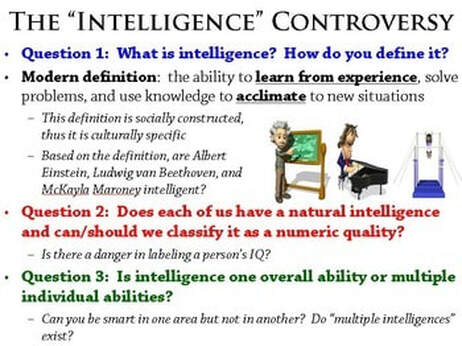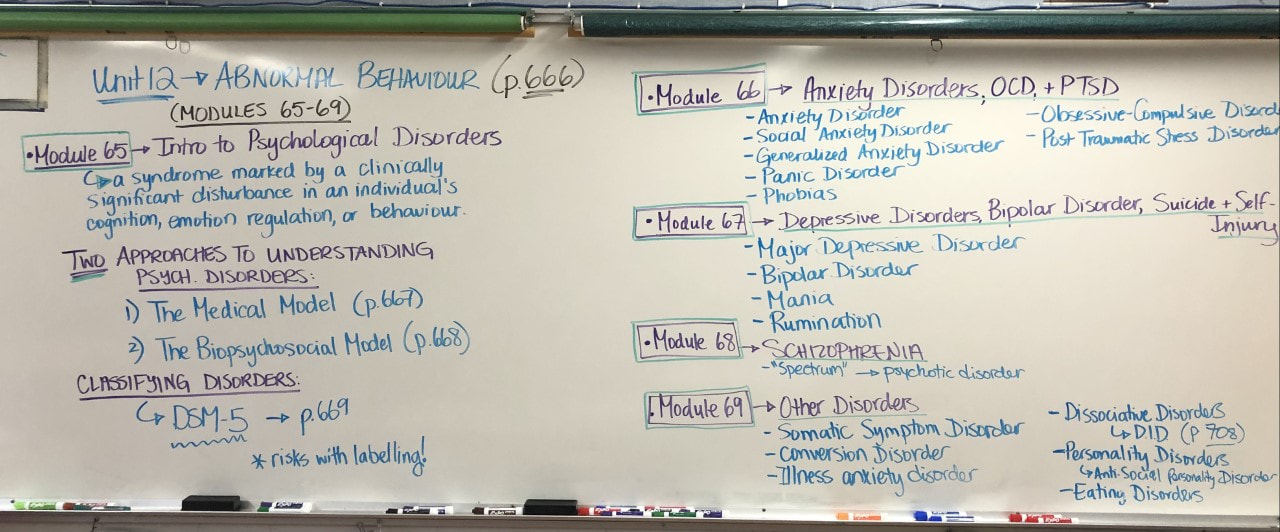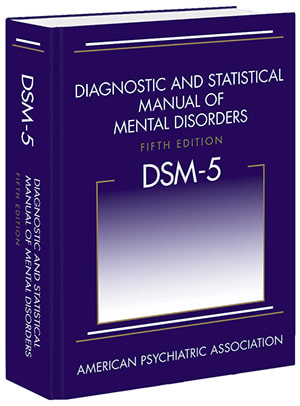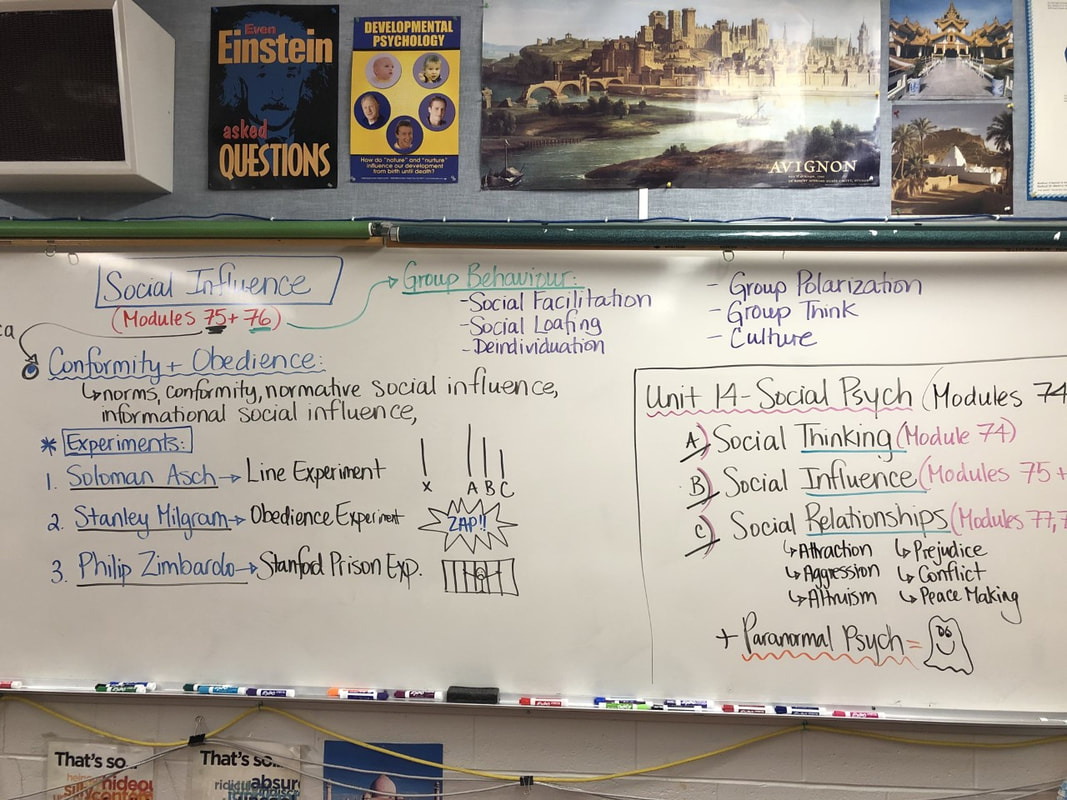Welcome to AP Psychology 12!
This Advanced Placement Psychology 12 course covers 14 major topics in contemporary psychology and uses the Myers for AP Textbook 3rd Edition. AP Psych 12 is an intense, fast paced course that requires a lot of reading and staying up to date in your study guide. It is an exciting course with amazing topics but does require a dedicated commitment to the material. This page will have up to date information from each class, will have all downloads available to print off, will have the May 2nd 2023 AP Exam Info, and will also have test dates posted well in advance so you can study. Time to get Psyched!
DOWNLOADS AND HANDOUTS:
| AP Textbook MC Module & Unit Answers.pdf | |
| File Size: | 910 kb |
| File Type: | |
| AP Psych Course Outline Ms Carey 2022 2023.pdf | |
| File Size: | 686 kb |
| File Type: | |
|
Helpful Links for AP Students
AP College Board FRQ Questions: https://apcentral.collegeboard.org/courses/ap-psychology/exam/past-exam-questions AP College Board AP Psych Info Link: https://apcentral.collegeboard.org/courses/ap-psychology AP Psychology Exam Scoring Guideline: https://apcentral.collegeboard.org/media/pdf/ap-psychology-2019-ced-scoring-guidelines.pdf |
Unit 1- History & Approaches
(Modules 1-3 in Myers AP 3rd Ed. Textbook)
(Modules 1-3 in Myers AP 3rd Ed. Textbook)
| Unit 1 PPoint Slides History & Approaches .pdf | |
| File Size: | 5186 kb |
| File Type: | |
| Unit 1 Practice MC Questions.pdf | |
| File Size: | 330 kb |
| File Type: | |
Unit 2- Research Methods
(Modules 4-8 of your Textbook)
THREE MAIN RESEARCH METHODS:
1. Descriptive Studies (Surveys, Case Studies, & Naturalistic Observations)
2. Correlational Studies (examines the relationships between 2 variables)
3. Experiments (know the full step by step procedures- groups, variables, etc) **CAUSE & EFFECT!
** Why is it important to use a scientific approach? Hindsight Bias & Overconfidence? We need to use the scientific method- but when you get to the Conduct Research Step, you can choose one of the above research methods. Remember each have their own positive & negative aspects and only experiments have a direct cause & effect relationship.
(Modules 4-8 of your Textbook)
THREE MAIN RESEARCH METHODS:
1. Descriptive Studies (Surveys, Case Studies, & Naturalistic Observations)
2. Correlational Studies (examines the relationships between 2 variables)
3. Experiments (know the full step by step procedures- groups, variables, etc) **CAUSE & EFFECT!
** Why is it important to use a scientific approach? Hindsight Bias & Overconfidence? We need to use the scientific method- but when you get to the Conduct Research Step, you can choose one of the above research methods. Remember each have their own positive & negative aspects and only experiments have a direct cause & effect relationship.
| Unit 2 Summary Notes..pdf | |
| File Size: | 543 kb |
| File Type: | |
| Unit 2 MC Practice Questions..pdf | |
| File Size: | 298 kb |
| File Type: | |
| Module 8 Statistical Significance Worksheet .pdf | |
| File Size: | 173 kb |
| File Type: | |
Unit 3- Biological Bases of Behaviour
(Modules 9-15)
Remember... everything psychological is biological. You need to be able to explain how your biology can impact human behaviour.
1) Neurons- parts & how they work/communicate with your brain and body? role of neurotransmitters?
2) Nervous & Endocrine Systems- how do they work? parts? communicate how? fast? slow?
3) The Brain- scans on how to study the brain, older structures, limbic system, cortex (all lobes & association areas)
4) Split Brain- what does this mean? Why do it? How does it impact reading, vision?
5) How have we (humans & animals) evolved to act/be this way?
(Modules 9-15)
Remember... everything psychological is biological. You need to be able to explain how your biology can impact human behaviour.
1) Neurons- parts & how they work/communicate with your brain and body? role of neurotransmitters?
2) Nervous & Endocrine Systems- how do they work? parts? communicate how? fast? slow?
3) The Brain- scans on how to study the brain, older structures, limbic system, cortex (all lobes & association areas)
4) Split Brain- what does this mean? Why do it? How does it impact reading, vision?
5) How have we (humans & animals) evolved to act/be this way?
| Neural Communication Notes.pdf | |
| File Size: | 521 kb |
| File Type: | |
| nervous_and_endocrine_system_notes.pdf | |
| File Size: | 312 kb |
| File Type: | |
| Neural Comm Practice MC Questions.pdf | |
| File Size: | 310 kb |
| File Type: | |
| Intro to the Brain Notes.pdf | |
| File Size: | 366 kb |
| File Type: | |
| Module 11 Brain Practice Qs with Answers.pdf | |
| File Size: | 341 kb |
| File Type: | |
| Module 12 PPoint with Gage & Brain Injuries..pdf | |
| File Size: | 1132 kb |
| File Type: | |
| Module 11 and 12 Practice Qs with answers.pdf | |
| File Size: | 341 kb |
| File Type: | |
| the_brain_notes.pdf | |
| File Size: | 201 kb |
| File Type: | |
| Brain Scenario Worksheet .pdf | |
| File Size: | 170 kb |
| File Type: | |
| Brain Hat Template pdf | |
| File Size: | 1358 kb |
| File Type: | |
| Module 13 Our Divided Brain Notes & Questions.doc | |
| File Size: | 163 kb |
| File Type: | doc |
| Module 13 Split Brain PPoint Slides.pdf | |
| File Size: | 595 kb |
| File Type: | |
| unit_3_bio___brain_practice_qs_70_mc.pdf | |
| File Size: | 325 kb |
| File Type: | |
| Unit 3 45 MC Practice Questions .pdf | |
| File Size: | 320 kb |
| File Type: | |
Unit 4- Sensation & Perception
(Modules 16-21)
You will need to know:
- Basic Concepts of Sensation & Perception (terms)
- What influences Perception?
- VISION- how the eye works and how the brain perceives
- HEARING- how hearing works and how the brain perceives sound
- THE OTHER SENSES- know how the other senses work (smell- olfactory bulb), etc.
-ESP (Extra Sensory Perception & the Paranormal) How can we prove it is real? Scientific Method?
** Remember to keep an open mind, have a healthy level of skepticism, and humility. ESP and Paranormal Psychology are fascinating areas to study, but what does the research say? What about people who have had experiences? Can you use the scientific method to explain these claims? Does SOCIAL PSYCH (Unit 14) and the power of the situation impact these claims?
(Modules 16-21)
You will need to know:
- Basic Concepts of Sensation & Perception (terms)
- What influences Perception?
- VISION- how the eye works and how the brain perceives
- HEARING- how hearing works and how the brain perceives sound
- THE OTHER SENSES- know how the other senses work (smell- olfactory bulb), etc.
-ESP (Extra Sensory Perception & the Paranormal) How can we prove it is real? Scientific Method?
** Remember to keep an open mind, have a healthy level of skepticism, and humility. ESP and Paranormal Psychology are fascinating areas to study, but what does the research say? What about people who have had experiences? Can you use the scientific method to explain these claims? Does SOCIAL PSYCH (Unit 14) and the power of the situation impact these claims?
| unit_4_2020_summary_notes_.pdf | |
| File Size: | 521 kb |
| File Type: | |
| Unit 4 Chapter Summary Notes.pdf | |
| File Size: | 2336 kb |
| File Type: | |
| Sensation & Perception Intro Notes.pdf | |
| File Size: | 115 kb |
| File Type: | |
| Module 16 Sensation & Percep Slides.pdf | |
| File Size: | 492 kb |
| File Type: | |
| vision_notes_unit_4.pdf | |
| File Size: | 80 kb |
| File Type: | |
| sensation_and_perception_ppoint.pptx | |
| File Size: | 6813 kb |
| File Type: | pptx |
| eye_and_ear_worksheet.pdf | |
| File Size: | 103 kb |
| File Type: | |
| hearing_notes_ap_psych_unit_4.pdf | |
| File Size: | 138 kb |
| File Type: | |
| module_19_ppoint_slides.pdf | |
| File Size: | 485 kb |
| File Type: | |
| Unit 4 ESP Notes Ms Carey pdf | |
| File Size: | 152 kb |
| File Type: | |
| Paranormal Psych ESP MC Practice Qs with answers 2021.pdf | |
| File Size: | 209 kb |
| File Type: | |
| sensation_and_perception_ppoint.pptx | |
| File Size: | 6813 kb |
| File Type: | pptx |
| perceptual_organization_notes.pdf | |
| File Size: | 80 kb |
| File Type: | |
| 100_mc_practice_questions_for_sen_and_percep.pdf | |
| File Size: | 1398 kb |
| File Type: | |
| answers_to_100_mc_question_booklet.pdf | |
| File Size: | 786 kb |
| File Type: | |
| unit_4_practice_booklet_3_with_frq.pdf | |
| File Size: | 229 kb |
| File Type: | |
After reading about selective attention, change blindness and the cocktail party effect, watch the two clips below (Selective Attention Test & the Nova Change Blindness clips) and follow the instructions. What do you see?? :)
After reading about Hearing & Sound, take the "How old are your Ears?" hearing test. Volume up!! :)
For Fun... the clip below is from the comedy GHOSTBUSTERS from 1984 trying to show ESP in action. Just a fun clip.
The following trailer is for a new 2023 show called History's Most Haunted... :)
Unit 5- States of Consciousness
(Modules 22-25)
For Unit 5 you need to understand how consciousness impacts your behaviour. The big question is: WHAT and WHERE is consciousness in the brain? Are you conscious now? What about when you are asleep? Why do you wake up when you hear your alarm or phone?
1) Hypnosis- what is it and is it real? What's the verdict today?
2) Sleep & Sleep Disorders- cycle of sleep, stages of sleep, sleep disorders, sleep debt- what does it mean?
3) Dreams- what do they mean if anything? Theories on dreams.
4) Drugs & Consciousness- 3 types of psychoactive drugs & how they impact the body
(Modules 22-25)
For Unit 5 you need to understand how consciousness impacts your behaviour. The big question is: WHAT and WHERE is consciousness in the brain? Are you conscious now? What about when you are asleep? Why do you wake up when you hear your alarm or phone?
1) Hypnosis- what is it and is it real? What's the verdict today?
2) Sleep & Sleep Disorders- cycle of sleep, stages of sleep, sleep disorders, sleep debt- what does it mean?
3) Dreams- what do they mean if anything? Theories on dreams.
4) Drugs & Consciousness- 3 types of psychoactive drugs & how they impact the body
| Unit 5 States of Consciousness PPoint.pptx | |
| File Size: | 7129 kb |
| File Type: | pptx |
| Intro to Consciousness Module 22 wsheet.docx | |
| File Size: | 109 kb |
| File Type: | docx |
| unit_5_short_anwswer_worksheet.pdf | |
| File Size: | 40 kb |
| File Type: | |
| module_25_drug_practice_qs.pdf | |
| File Size: | 164 kb |
| File Type: | |
| Unit 5 Practice Questions.pdf | |
| File Size: | 166 kb |
| File Type: | |
FREE SLEEP DEBT CALCULATOR:
https://www.appannie.com/en/apps/google-play/app/com.application.sleepdebt/
https://www.appannie.com/en/apps/google-play/app/com.application.sleepdebt/
Unit 6- Learning
(Modules 26-30)
How do people & animals learn? How much is instinct? Three main theories on how we learn:
- Classical Conditioning (Ivan Pavlov)
- Operant Conditioning (B.F. Skinner)
- Learning by Observation (Albert Bandura)
(Modules 26-30)
How do people & animals learn? How much is instinct? Three main theories on how we learn:
- Classical Conditioning (Ivan Pavlov)
- Operant Conditioning (B.F. Skinner)
- Learning by Observation (Albert Bandura)
| Unit 6 Guided Reading Guide. pdf | |
| File Size: | 61 kb |
| File Type: | |
| learning_powerpoint_classical_conditioning.ppt | |
| File Size: | 2956 kb |
| File Type: | ppt |
| classical_conditioning_7_situation_parnter_review_sheet.pdf | |
| File Size: | 138 kb |
| File Type: | |
| skinner_and_operant_conditioning_mc_questions.pdf | |
| File Size: | 314 kb |
| File Type: | |
| pavlov_and_classical_conditioning_mc_questions.pdf | |
| File Size: | 364 kb |
| File Type: | |
| learning_by_observation_mc_questions.pdf | |
| File Size: | 256 kb |
| File Type: | |
Pavlov's Classical Conditioning in Action- The Office: Dwight & Altoids
Skinner's Operant Conditioning in Action: Big Bang Theory: Penny & Chocolate
Unit 7 - Cognition (Memory)
(Modules 31-33)
Memory, Thinking & Language
This is a large part of the AP Exam usually... you have to understand the brain, how memory works, types of memory and how we encode, store, and retrieve memories. What happens when someone has decay of these? It also discusses how we think (concepts, prototypes, problem solving), as well as how we create and use language.
(Modules 31-33)
Memory, Thinking & Language
This is a large part of the AP Exam usually... you have to understand the brain, how memory works, types of memory and how we encode, store, and retrieve memories. What happens when someone has decay of these? It also discusses how we think (concepts, prototypes, problem solving), as well as how we create and use language.
| Memory Unit 7 Booklet..docx | |
| File Size: | 224 kb |
| File Type: | docx |
| module_31_unit_7_ppoint_slides_studying___encoding_memories.pdf | |
| File Size: | 968 kb |
| File Type: | |
| module_32_ppoint_slides.pdf | |
| File Size: | 456 kb |
| File Type: | |
| module_33_ppoint_slides.pdf | |
| File Size: | 452 kb |
| File Type: | |
| unit_7_memory_pratice_mc_qs_from_class.pdf | |
| File Size: | 283 kb |
| File Type: | |
| 7 EXTRA multiple_choice_practice_qs_with_answers.pdf | |
| File Size: | 564 kb |
| File Type: | |
Unit 7- Cognition (Thinking & Language)
(Modules 34-36)
How do we think & use language? How do babies just learn to speak? Process and steps?
(Modules 34-36)
How do we think & use language? How do babies just learn to speak? Process and steps?
| Thinking & Language Booklet.pdf | |
| File Size: | 118 kb |
| File Type: | |
| 40 MC Practice Q's.pdf | |
| File Size: | 578 kb |
| File Type: | |
| MC Practice Qs 2.pdf | |
| File Size: | 614 kb |
| File Type: | |
| unit_7_booklet_cognition.docx | |
| File Size: | 224 kb |
| File Type: | docx |
Unit 8- Motivation, Emotion, and Stress
(Modules 37-44)
(Modules 37-44)
| U8 Motivation Practice Questions.pdf | |
| File Size: | 557 kb |
| File Type: | |
| 45 MC Qs Emotion & Health.pdf | |
| File Size: | 238 kb |
| File Type: | |
| U8 Notes on Motivation.pdf | |
| File Size: | 195 kb |
| File Type: | |
| Theories of Emotion Notes..pdf | |
| File Size: | 141 kb |
| File Type: | |
| ap_motivation_notes_unit_review.pdf | |
| File Size: | 689 kb |
| File Type: | |
Unit 9- Developmental Psychology
(Modules 45-54)
For Unit 9, you need to know the SOCIAL, PHYSICAL, and COGNITIVE changes that occur in each stage of the lifespan.
Pre-natal (in the womb), Infancy, Adolescence, & Adulthood. Make a chart and identify the changes at each stage! There are also a lot of psychologists to know in this unit so I recommend breaking it down based on the stage and either social, physical or cognitive category.
For example: Harry Harlow (Social- Infants), Jean Piaget (Cognitive- Infants & Adolescence), Vygotsky, Erikson, Kohlberg, etc.
(Modules 45-54)
For Unit 9, you need to know the SOCIAL, PHYSICAL, and COGNITIVE changes that occur in each stage of the lifespan.
Pre-natal (in the womb), Infancy, Adolescence, & Adulthood. Make a chart and identify the changes at each stage! There are also a lot of psychologists to know in this unit so I recommend breaking it down based on the stage and either social, physical or cognitive category.
For example: Harry Harlow (Social- Infants), Jean Piaget (Cognitive- Infants & Adolescence), Vygotsky, Erikson, Kohlberg, etc.
| prenatal___infancy_ppoint_unit_9.ppt | |
| File Size: | 6745 kb |
| File Type: | ppt |
| prental___infancy_40_practice_qs.pdf | |
| File Size: | 312 kb |
| File Type: | |
| adolescence_notes_unit_9.pdf | |
| File Size: | 519 kb |
| File Type: | |
| adulthood_notes_unit_9.pdf | |
| File Size: | 932 kb |
| File Type: | |
| adolescence_and_adulthood_chart_assignment.pdf | |
| File Size: | 71 kb |
| File Type: | |
| 65_unit_9_practice_qs.pdf | |
| File Size: | 315 kb |
| File Type: | |
| 35_mc_practice_questions_for_unit_9.pdf | |
| File Size: | 475 kb |
| File Type: | |
Unit 10- Personality
(Modules 55-59)
There are FOUR Theories of Personality you need to know:
1) Freud's Psychoanalytic Theory
2) Humanistic Theory (Maslow & Rogers)
3) The Trait Theory (CANOE or OCEAN)
4) Social-Cognitive Theory (Bandura)
(Modules 55-59)
There are FOUR Theories of Personality you need to know:
1) Freud's Psychoanalytic Theory
2) Humanistic Theory (Maslow & Rogers)
3) The Trait Theory (CANOE or OCEAN)
4) Social-Cognitive Theory (Bandura)
| Freuds Psychoanalytic Theory Notes.pdf | |
| File Size: | 233 kb |
| File Type: | |
| Freud & Defense Mechanisms Notes.docx | |
| File Size: | 67 kb |
| File Type: | docx |
| freud_mc_practice_questions.pdf | |
| File Size: | 258 kb |
| File Type: | |
| unit_10_psycho_and_humansitc_practice_qs.pdf | |
| File Size: | 117 kb |
| File Type: | |
| 40_mc_qs_on_trait_human_and_social_cog_theories.pdf | |
| File Size: | 571 kb |
| File Type: | |
| unit_10_50_mc_practice_review_qs.pdf | |
| File Size: | 741 kb |
| File Type: | |
Unit 11- Intelligence
(Modules 60-64)
For intelligence, you should be aware of HOW intelligence testing started (Binet- France), and how it has developed. What is intelligence? How is it tested today and how do we assess it? There are many psychologists and theories to know in this unit. Multiple Intelligences (Howard Gardner), Emotional Intelligence, WAIS/WISC- Weschler, and more. Be sure you understand the various types of testing too including the Achievement vs. Aptitude tests and the principles of test construction.
(Modules 60-64)
For intelligence, you should be aware of HOW intelligence testing started (Binet- France), and how it has developed. What is intelligence? How is it tested today and how do we assess it? There are many psychologists and theories to know in this unit. Multiple Intelligences (Howard Gardner), Emotional Intelligence, WAIS/WISC- Weschler, and more. Be sure you understand the various types of testing too including the Achievement vs. Aptitude tests and the principles of test construction.
| Unit 11 Intelligence Module Booklet Notes.docx | |
| File Size: | 130 kb |
| File Type: | docx |
| 25 MC Practice Questions.pdf | |
| File Size: | 193 kb |
| File Type: | |
HOWARD GARDNER'S 8 MULTIPLE INTELLIGENCES
** A possible 9th -existentialism is in the works...
** A possible 9th -existentialism is in the works...
Unit 12 - Abnormal Psychology
Intro Assignment on Psychological Disorders
(Modules 65-69)
This unit is a challenging one for various reasons. Be very clear that you understand Module 65 and the how labelling anyone comes with risks- there are stigmas attached to many labels and we have to be very clear on that. To identify any psychological disorder, psychiatrists and medial doctors must use one of the medical or bio psychosocial approaches, use the DSM-V as an assessment tool only, and work with the person individually on treatment options. Be sure to have a clear understanding of Module 65 before moving into the specific disorders in the rest of the modules.
Intro Assignment on Psychological Disorders
(Modules 65-69)
This unit is a challenging one for various reasons. Be very clear that you understand Module 65 and the how labelling anyone comes with risks- there are stigmas attached to many labels and we have to be very clear on that. To identify any psychological disorder, psychiatrists and medial doctors must use one of the medical or bio psychosocial approaches, use the DSM-V as an assessment tool only, and work with the person individually on treatment options. Be sure to have a clear understanding of Module 65 before moving into the specific disorders in the rest of the modules.
| Unit 12 Intro to Psych Disorders Worksheet.docx | |
| File Size: | 105 kb |
| File Type: | docx |
| Unit 12 Practice Qs 2020.pdf | |
| File Size: | 352 kb |
| File Type: | |
Remember... the DSM-IV was recently updated to the DSM-V and there are some big changes when it comes to disordered behaviour. For example, there are no longer 5 types of Schizophrenia, it is now a spectrum. There are no more 'Axis 1-5' either. If you come across any Unit 12 questions in old practice exams, please be aware that the DSM 5 is what you need to know for the exam= NOT the older questions. See me if you have any questions.
Unit 13- Therapies
(Modules 70- 73)
For Unit 13, go back to Unit 1 and review the main perspectives. They all connect to therapies and come full circle.
(Modules 70- 73)
For Unit 13, go back to Unit 1 and review the main perspectives. They all connect to therapies and come full circle.
| Unit 13 Therapy 70 MC Practice Qs. pdf | |
| File Size: | 1026 kb |
| File Type: | |
| Module 70 Therapy PPoint | |
| File Size: | 789 kb |
| File Type: | pptx |
Unit 14- Social Psychology
(Modules 74-80)
For Social Psychology, break it down into 3 main Sections:
1. Social Thinking (fundamental attribution error, cognitive dissonance, etc)
2. Social Influence (Milgram, Asch, Zimbardo experiments & conformity/obedience)
3. Social Relationships (Prejudice, Aggression, Attraction, Altruism, Conflict, Peacemaking)
**It's all about how we think, are influenced (and how we influence others), and how we relate to people.
(Modules 74-80)
For Social Psychology, break it down into 3 main Sections:
1. Social Thinking (fundamental attribution error, cognitive dissonance, etc)
2. Social Influence (Milgram, Asch, Zimbardo experiments & conformity/obedience)
3. Social Relationships (Prejudice, Aggression, Attraction, Altruism, Conflict, Peacemaking)
**It's all about how we think, are influenced (and how we influence others), and how we relate to people.
| Social Psych Practice Questions.pdf | |
| File Size: | 447 kb |
| File Type: | |
| 25 MC Practice Qs from class.pdf | |
| File Size: | 447 kb |
| File Type: | |
| 35 Extra Social Psych Practice Qs.pdf | |
| File Size: | 606 kb |
| File Type: | |
| Module 77 Prejudice & Discrimination Wsheet.docx | |
| File Size: | 63 kb |
| File Type: | docx |
| Unit 14 Intro Notes Social Psych..pdf | |
| File Size: | 385 kb |
| File Type: | |
| Social Thinking Worksheet.pdf | |
| File Size: | 61 kb |
| File Type: | |
| halloween_optional_activity.pdf | |
| File Size: | 371 kb |
| File Type: | |
AP Year End Exam Review
| AP Psych ALL UNIT SUMMARY REVIEW.pdf | |
| File Size: | 562 kb |
| File Type: | |
| Unit 1- 7 200 Practice Questions .pdf | |
| File Size: | 2787 kb |
| File Type: | |
| Units 8-14 200 Practice Questions .pdf | |
| File Size: | 2767 kb |
| File Type: | |
| List of Psychologists .pdf | |
| File Size: | 548 kb |
| File Type: | |
| 2009 FRQ Questions for practice.pdf | |
| File Size: | 457 kb |
| File Type: | |
| AP FRQs 2008 2007 .pdf | |
| File Size: | 152 kb |
| File Type: | |
